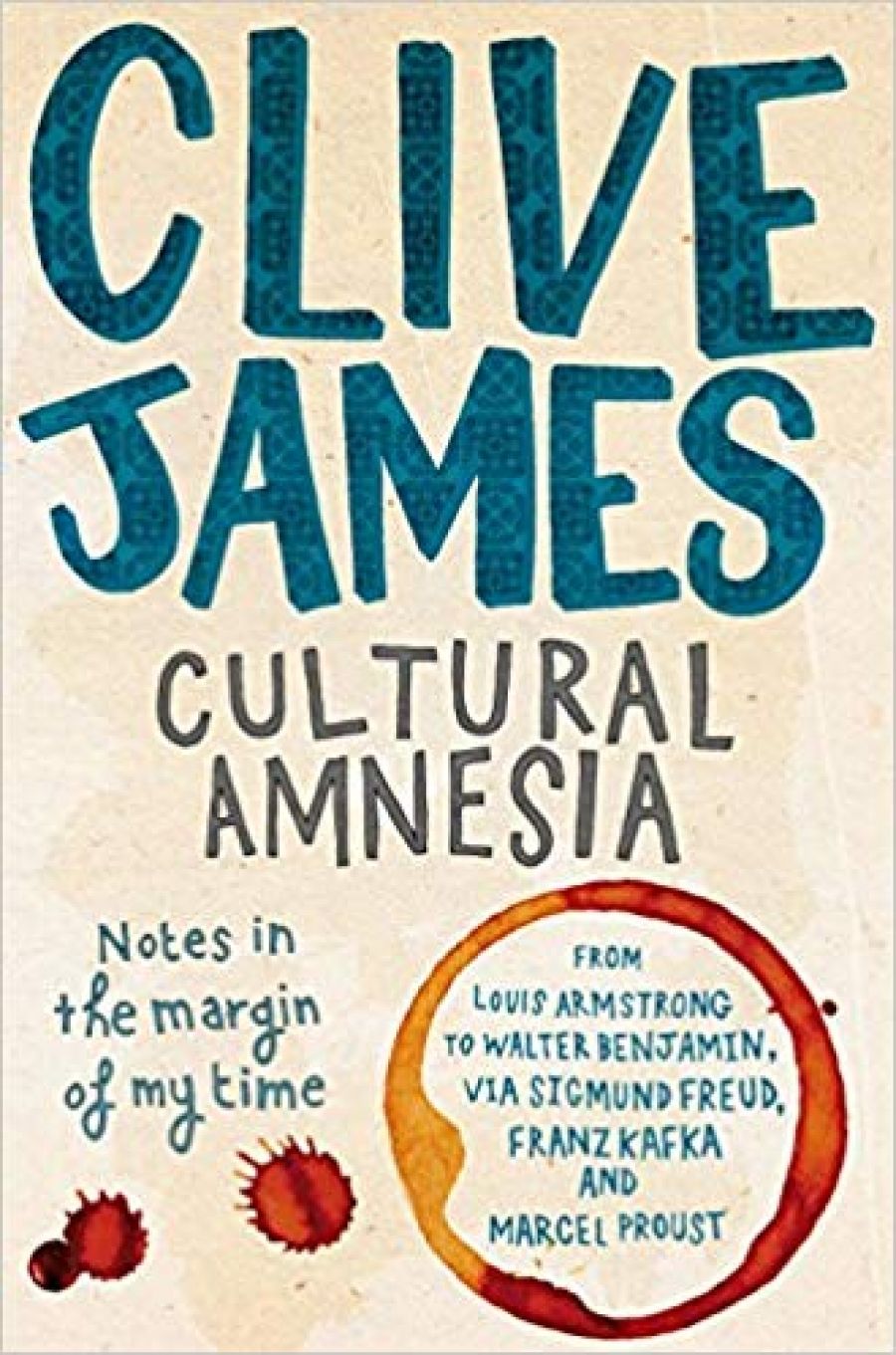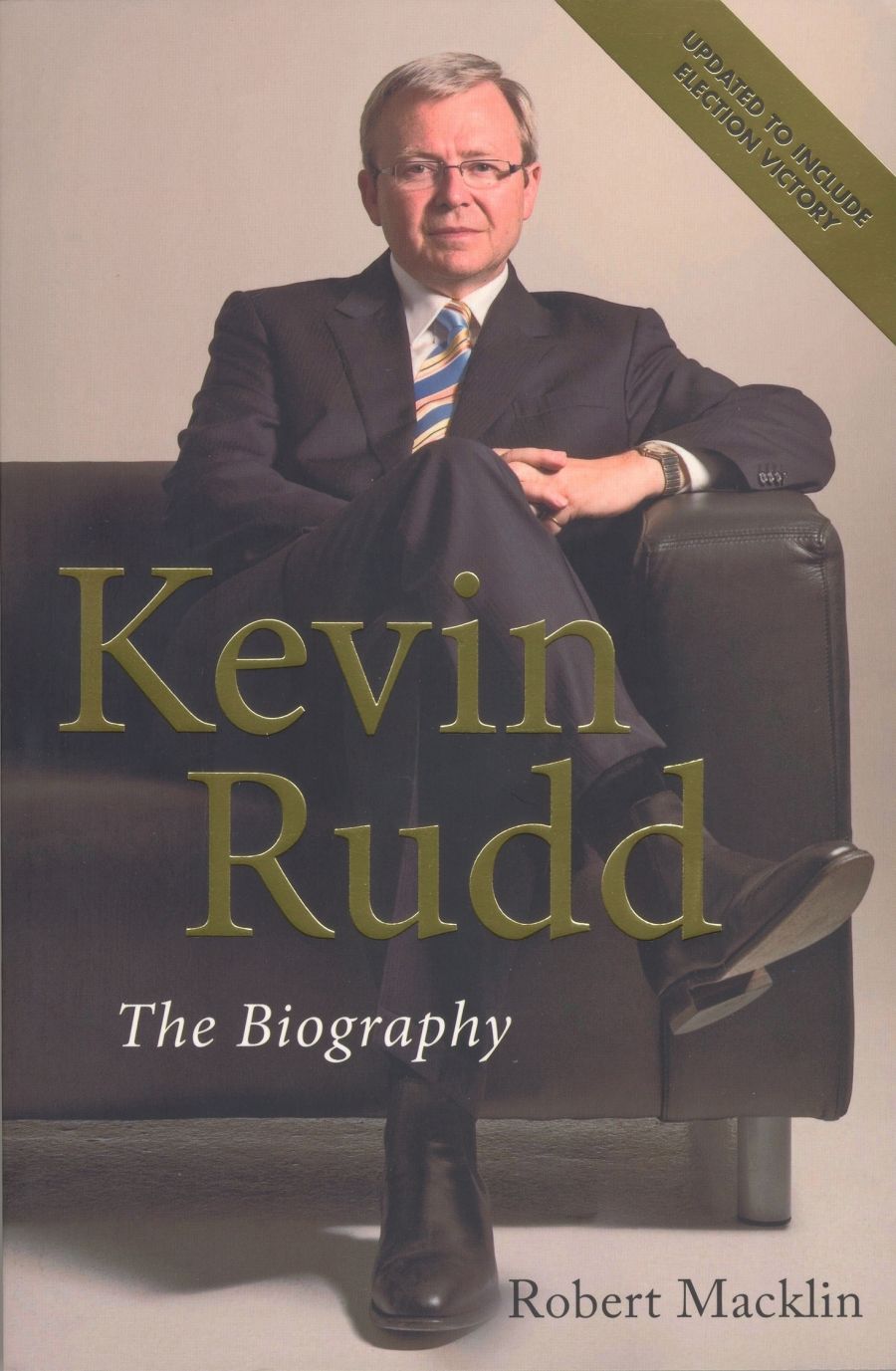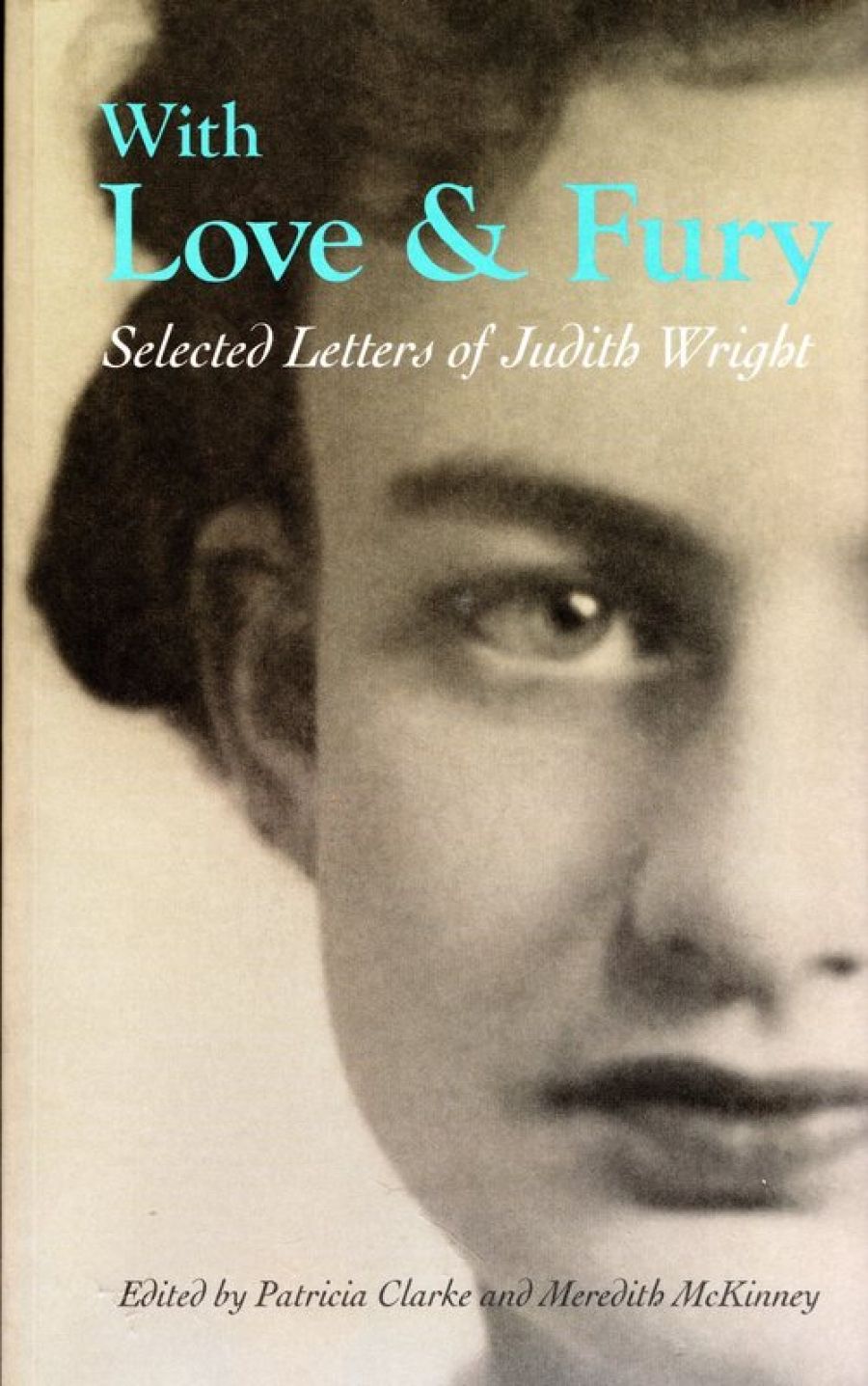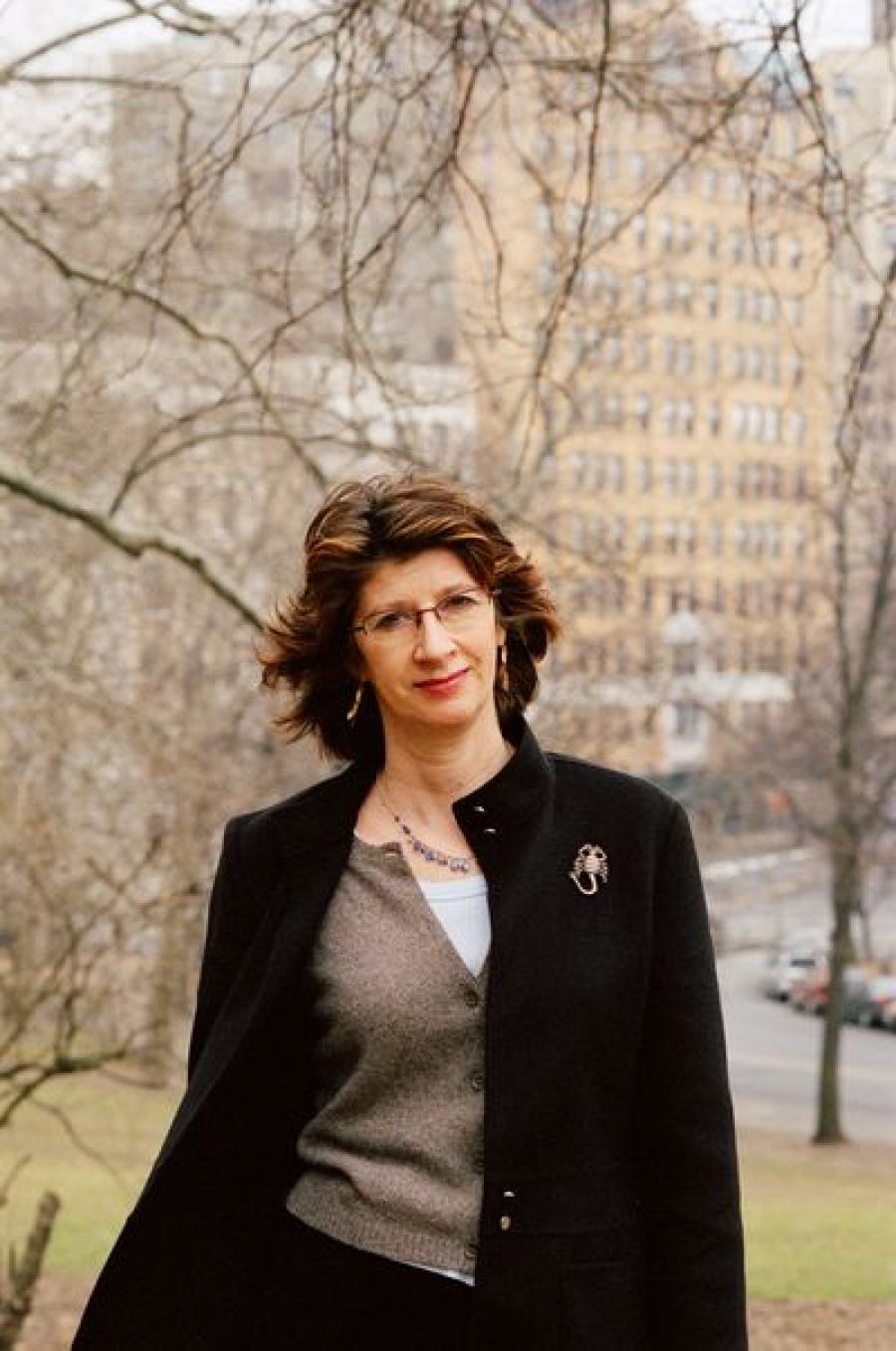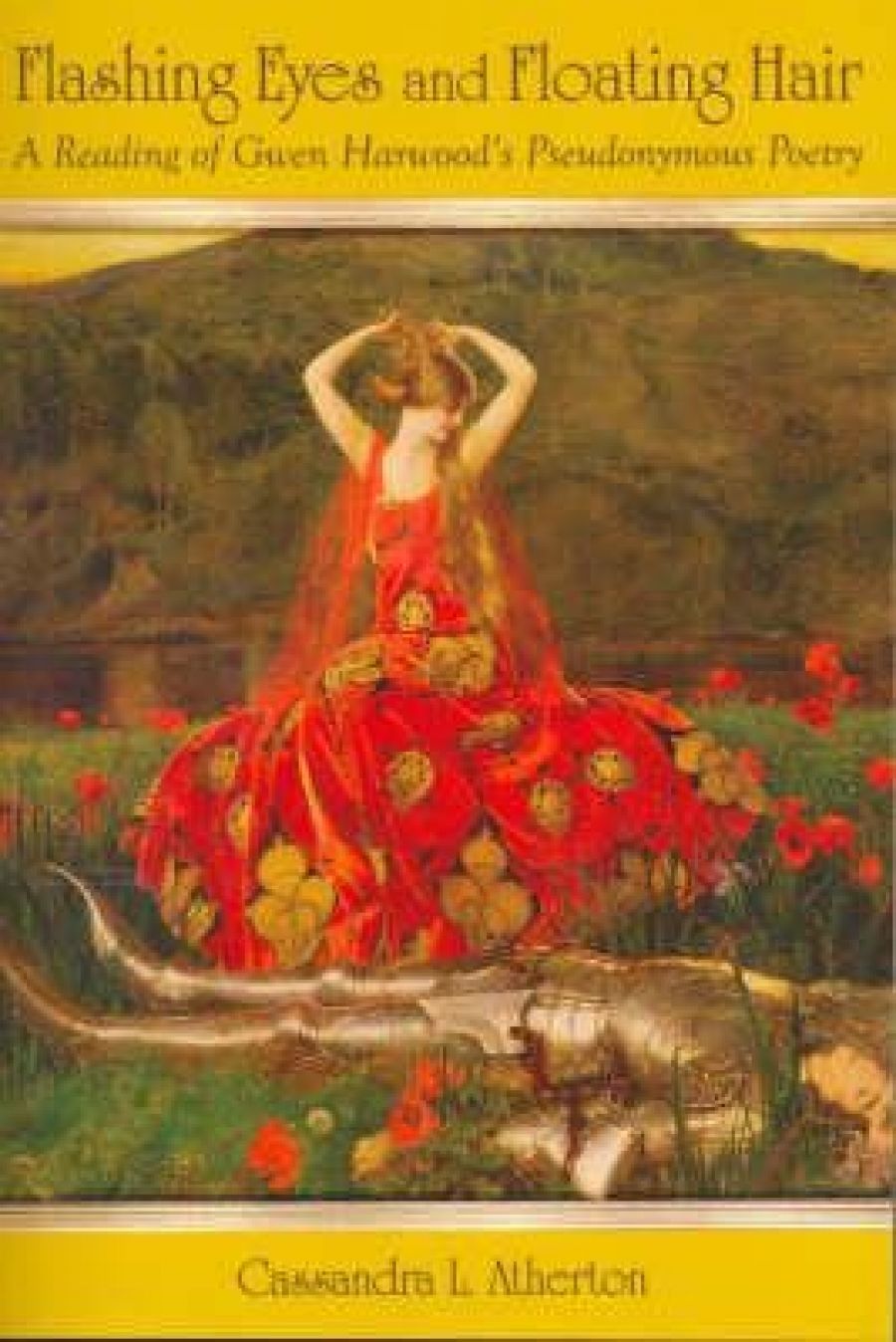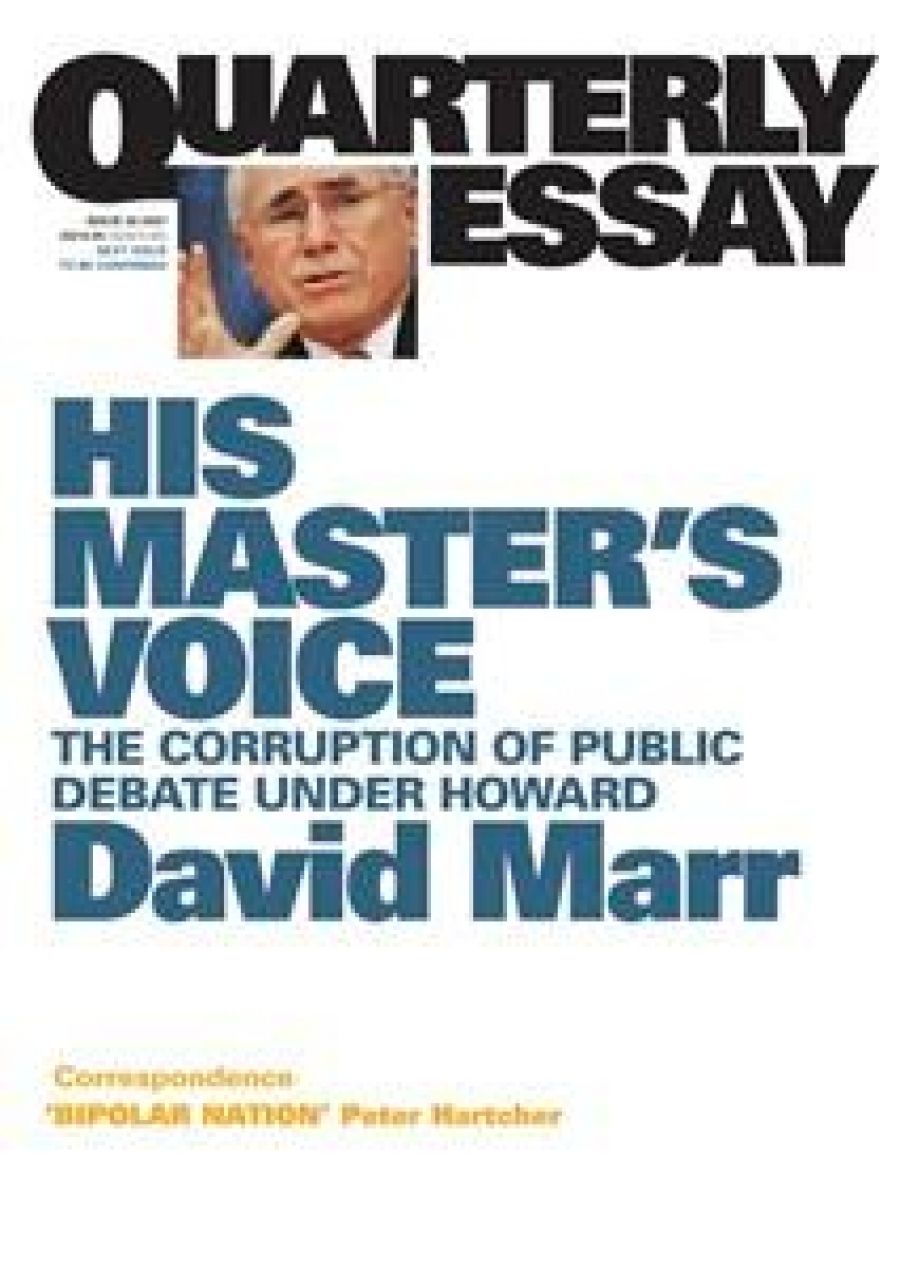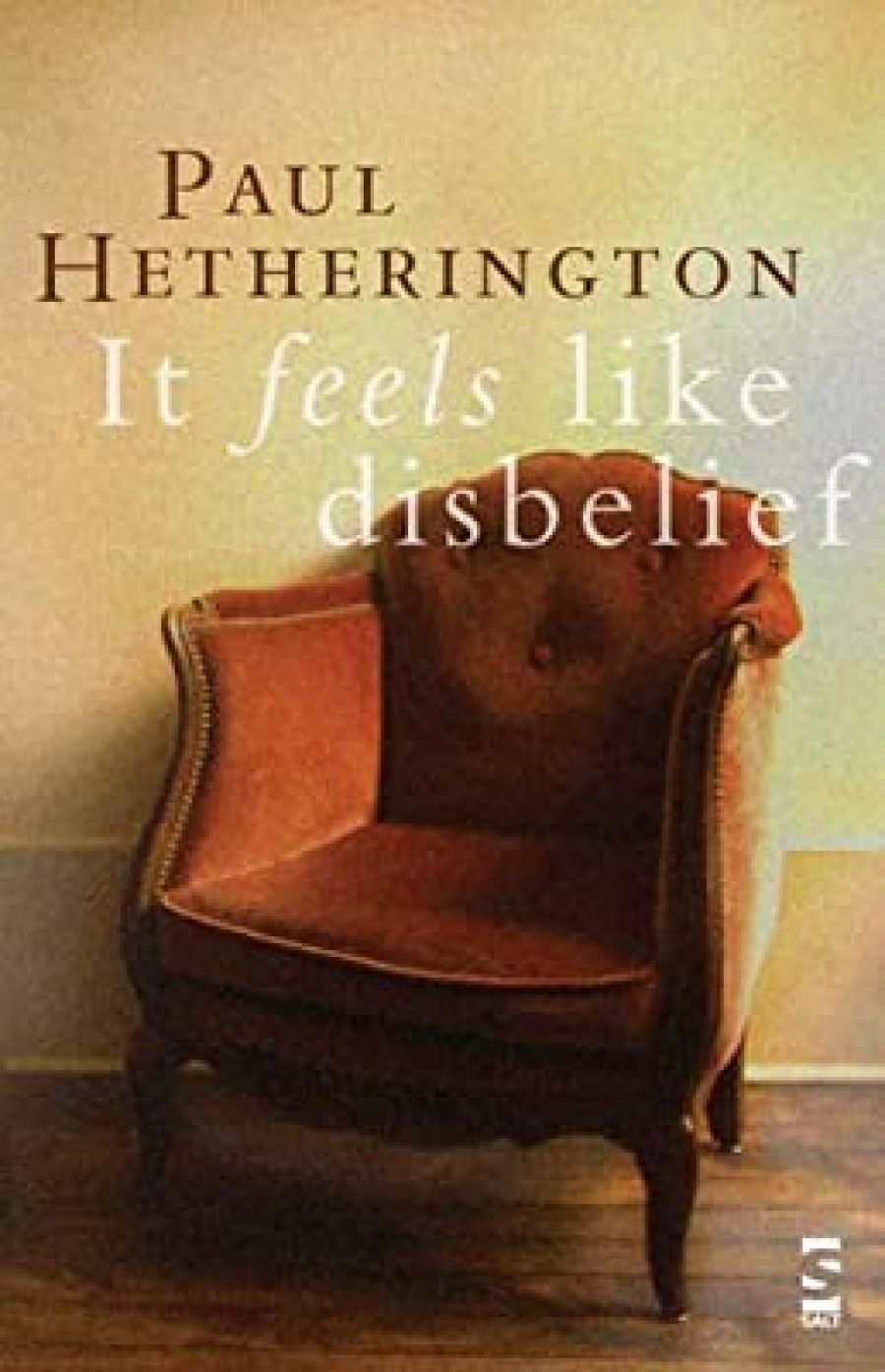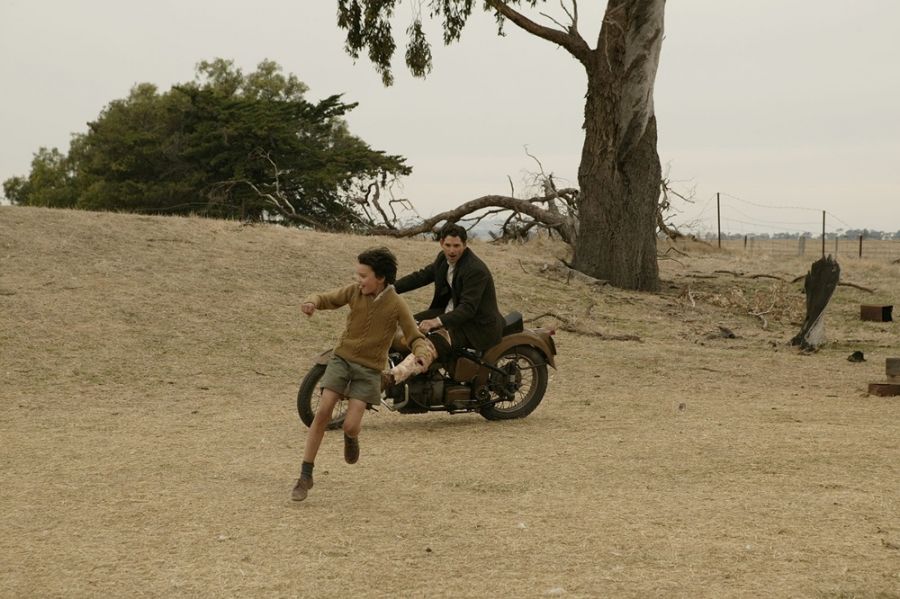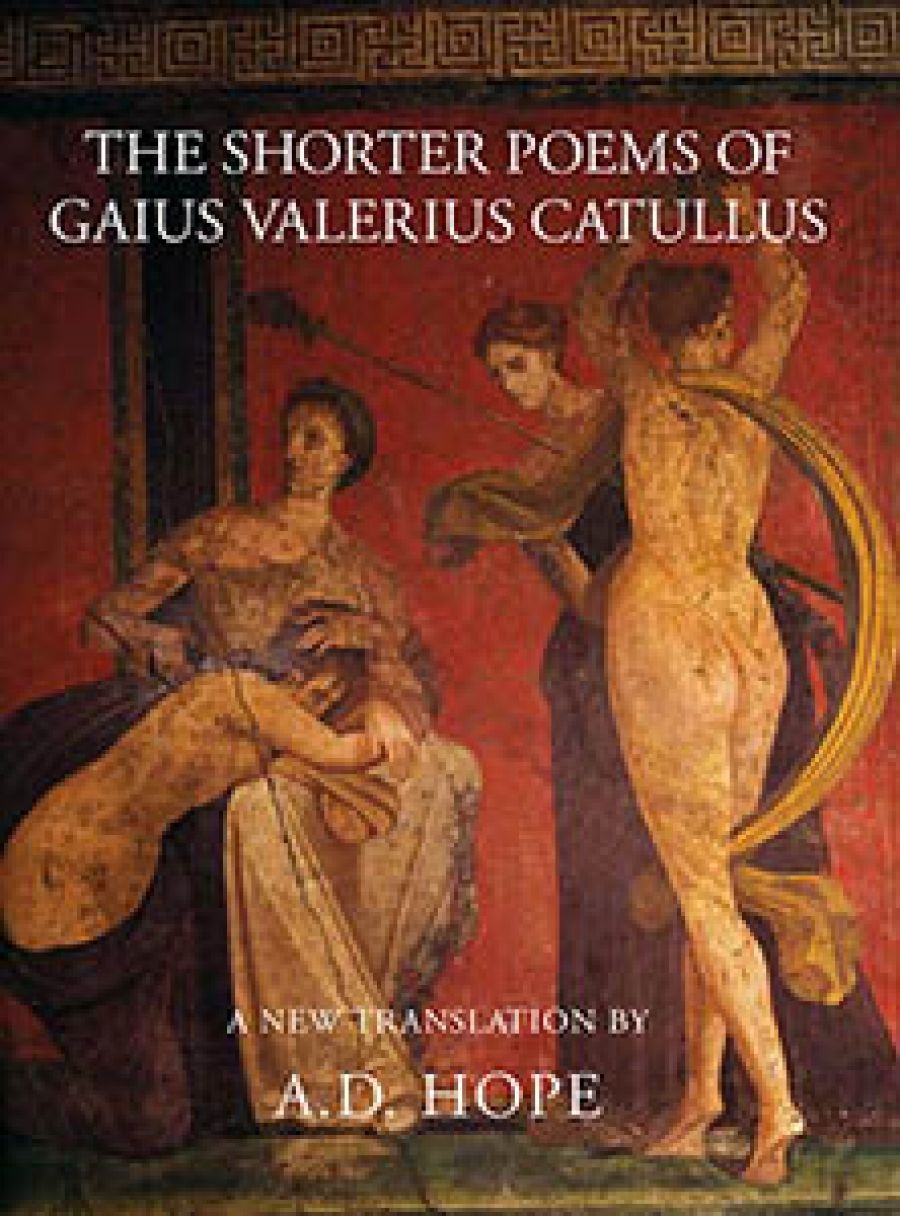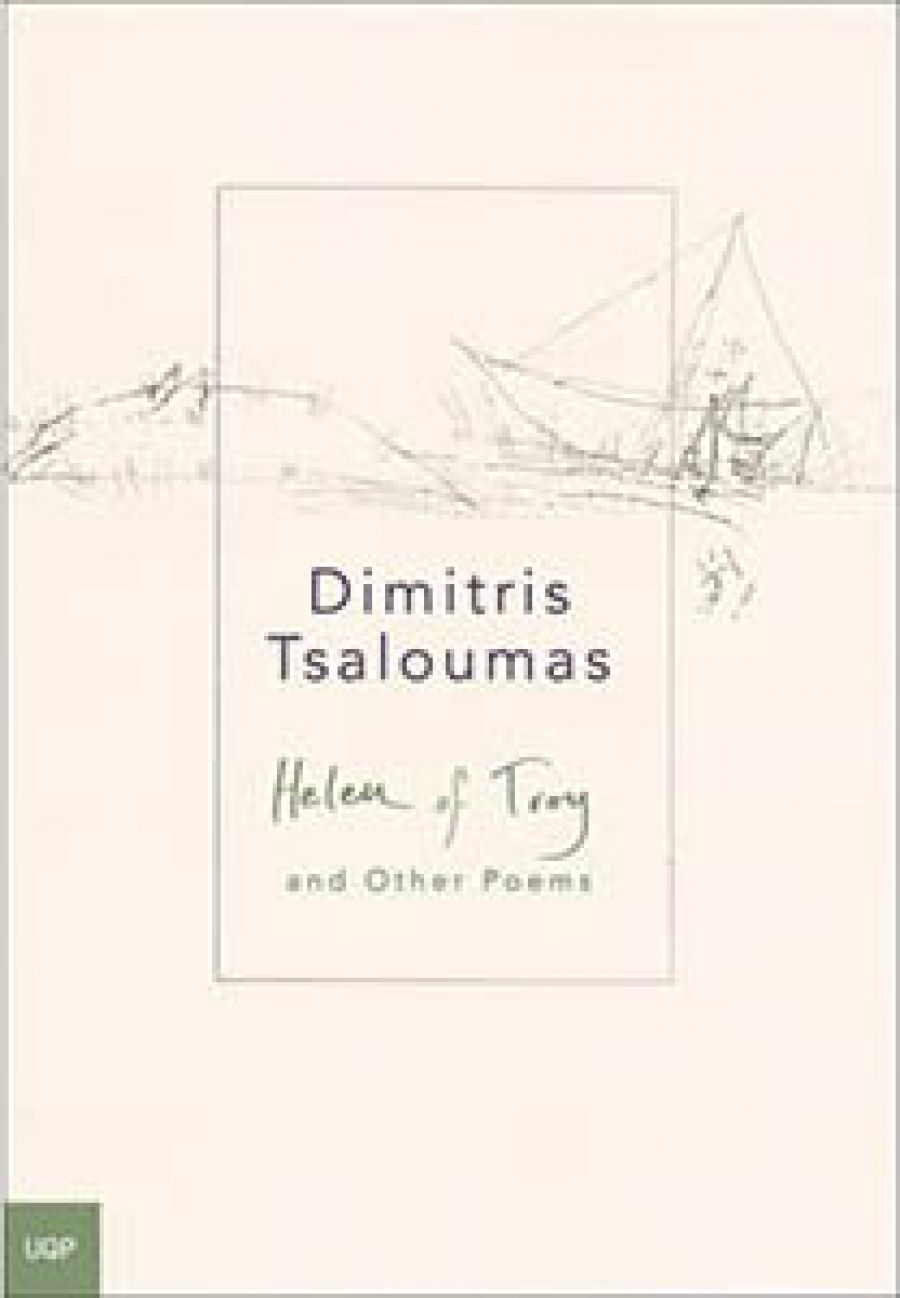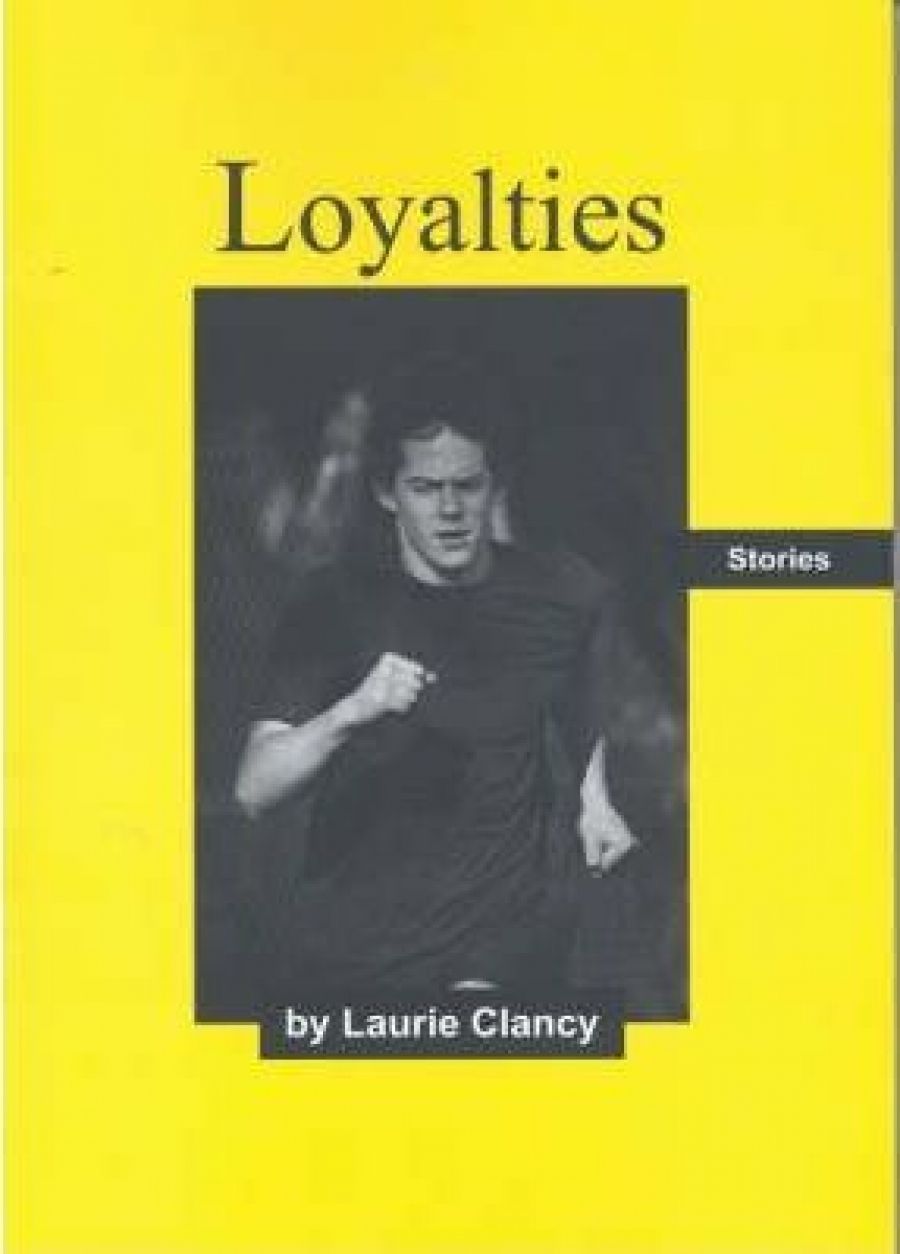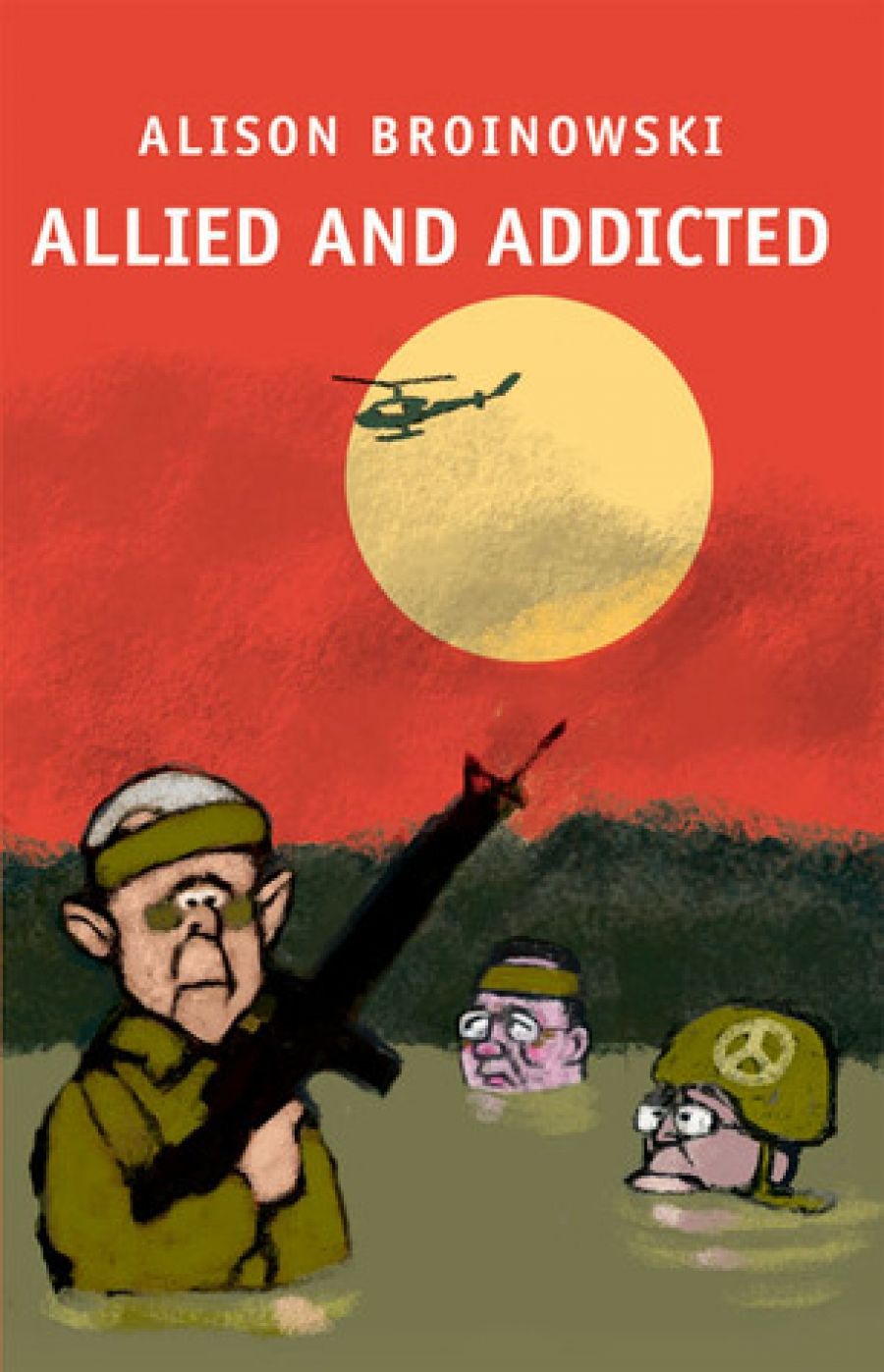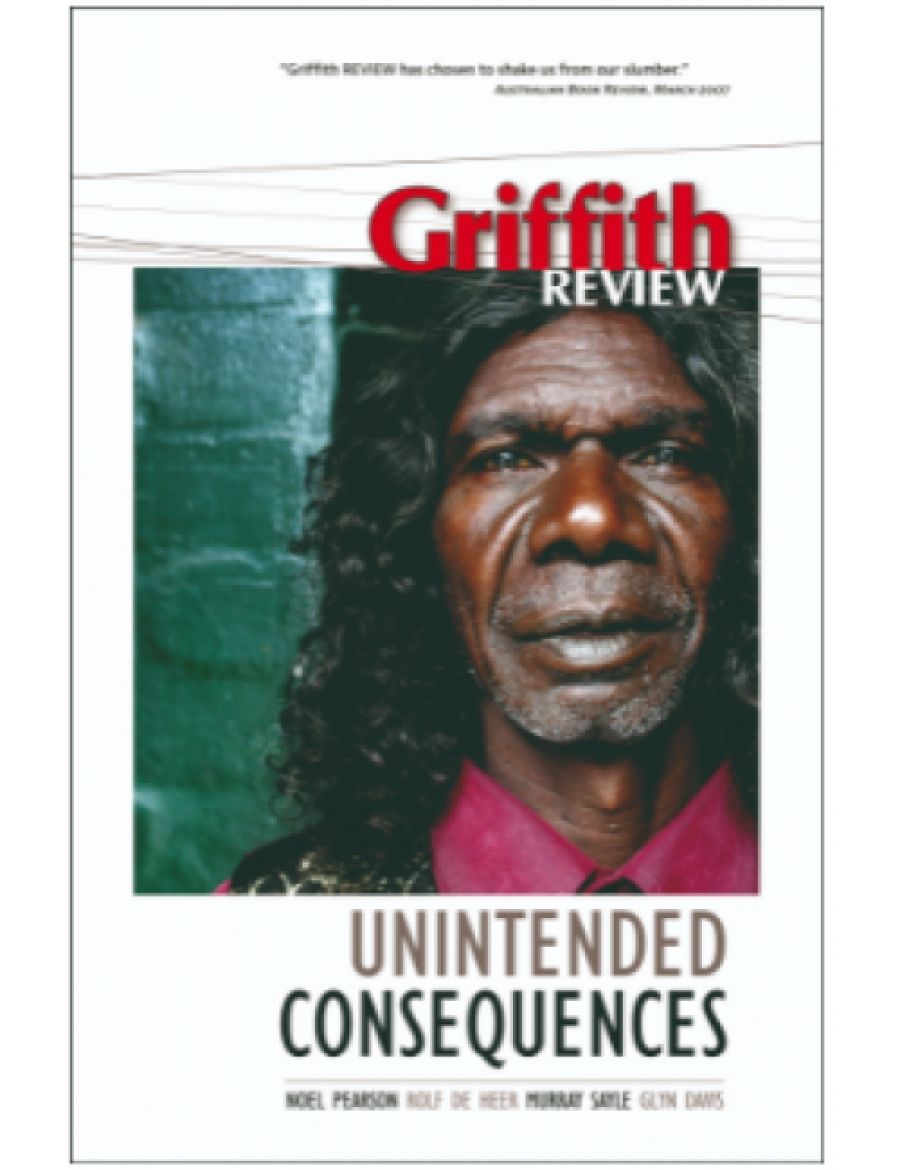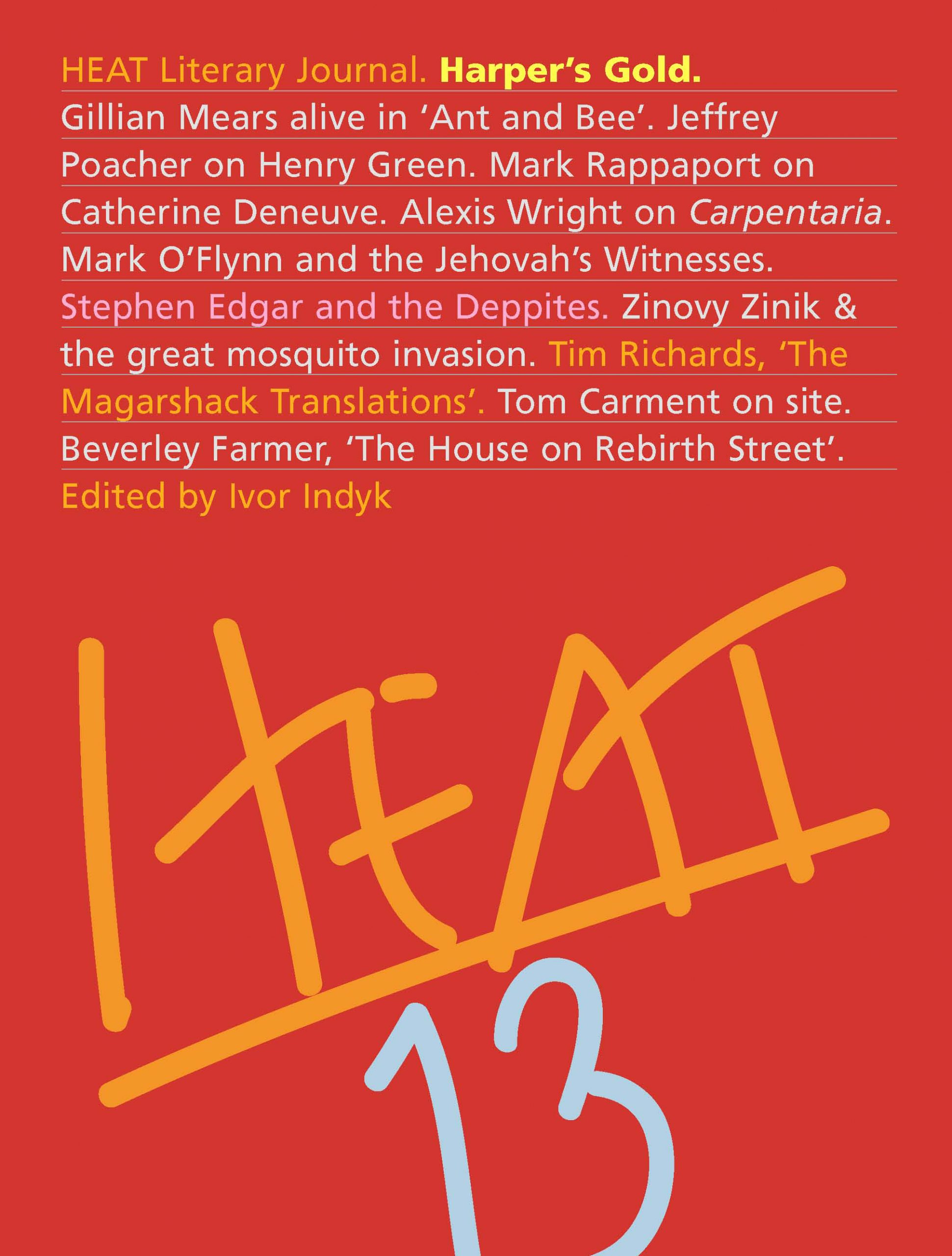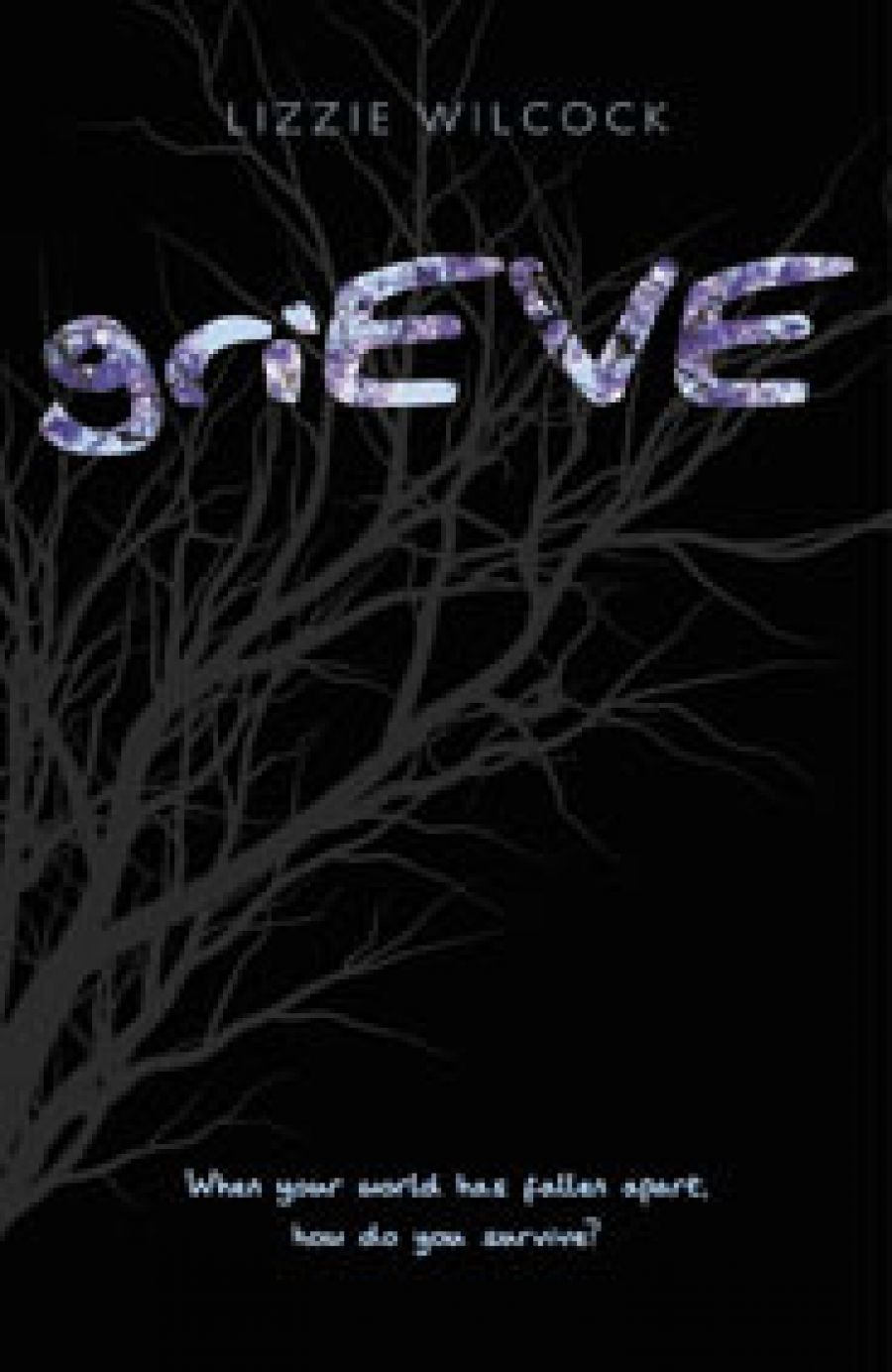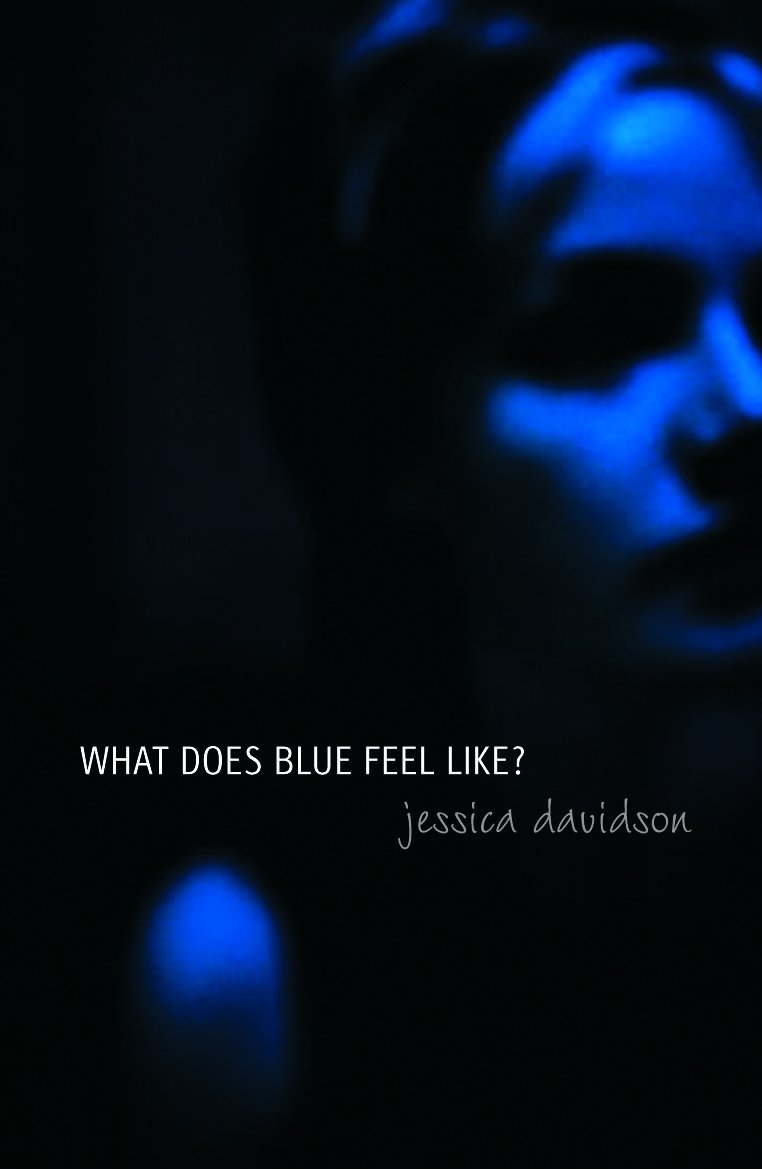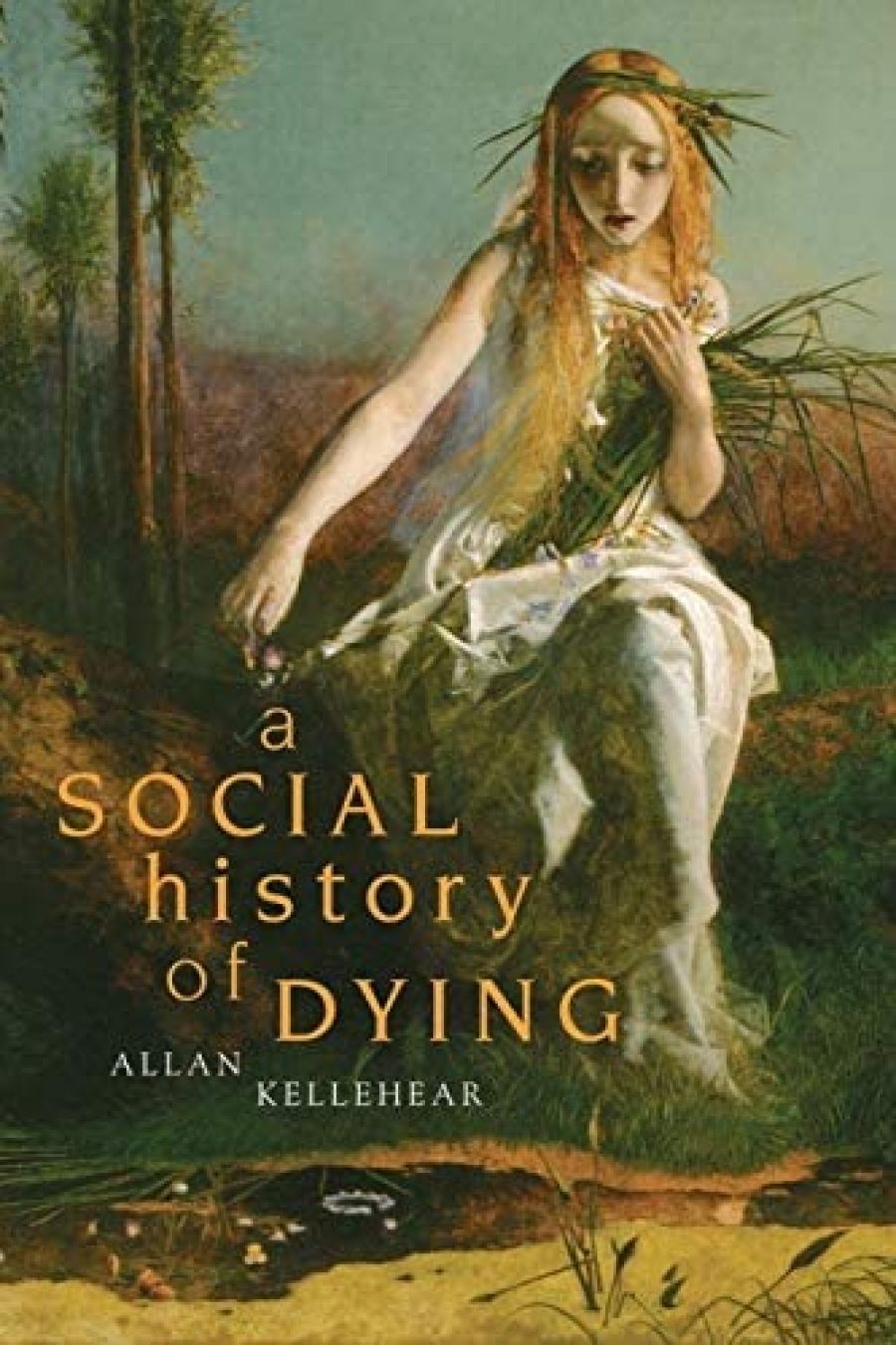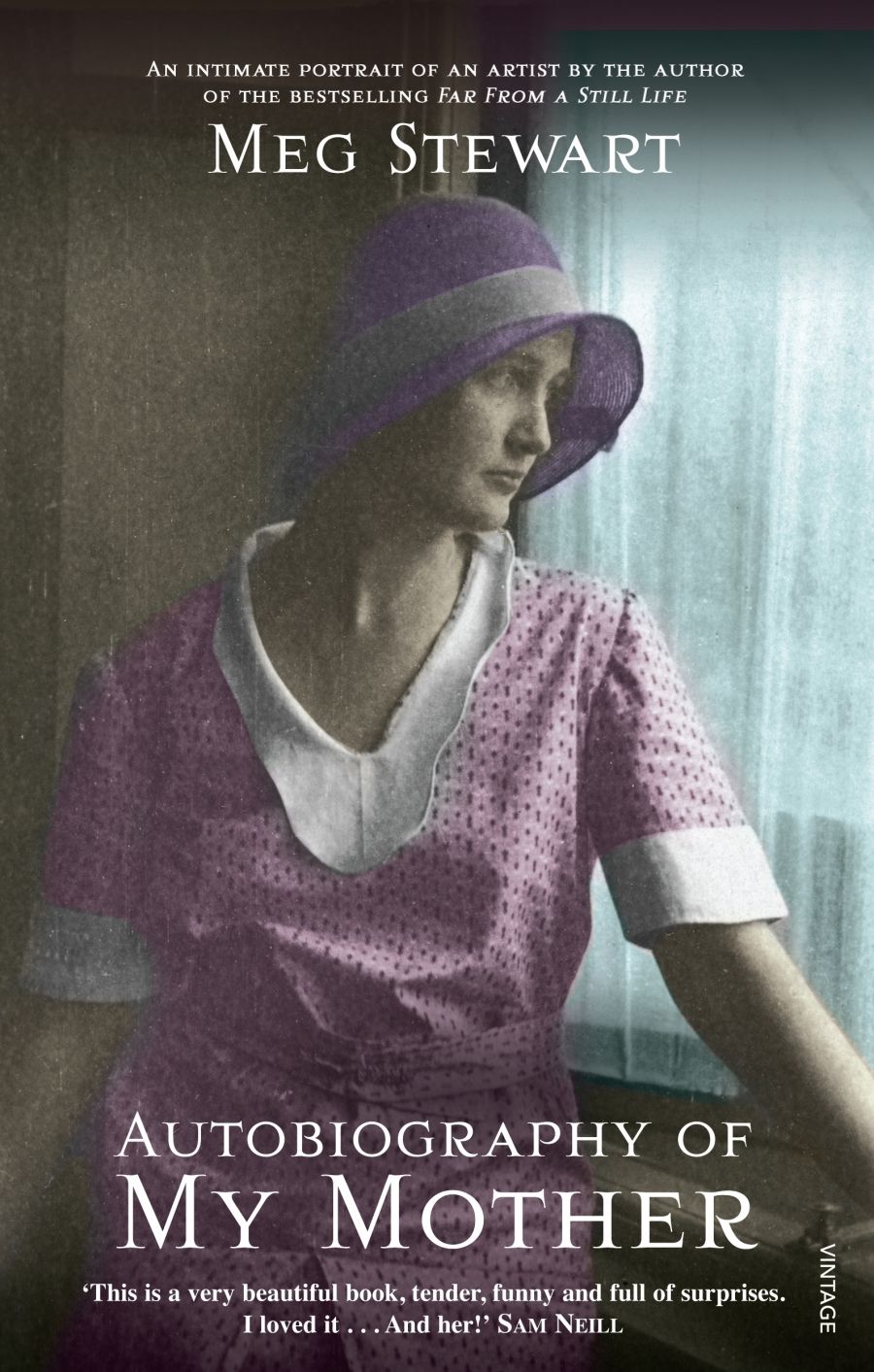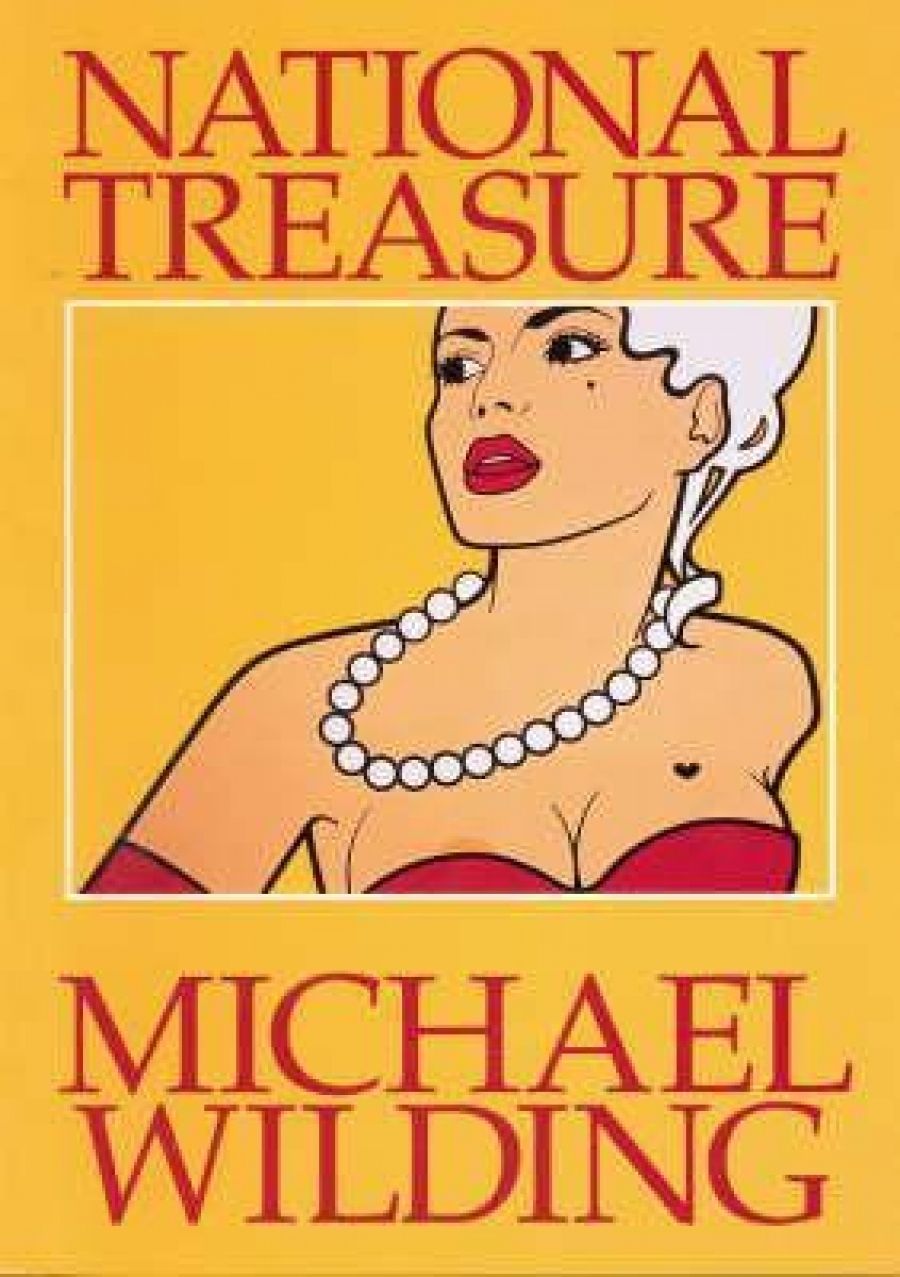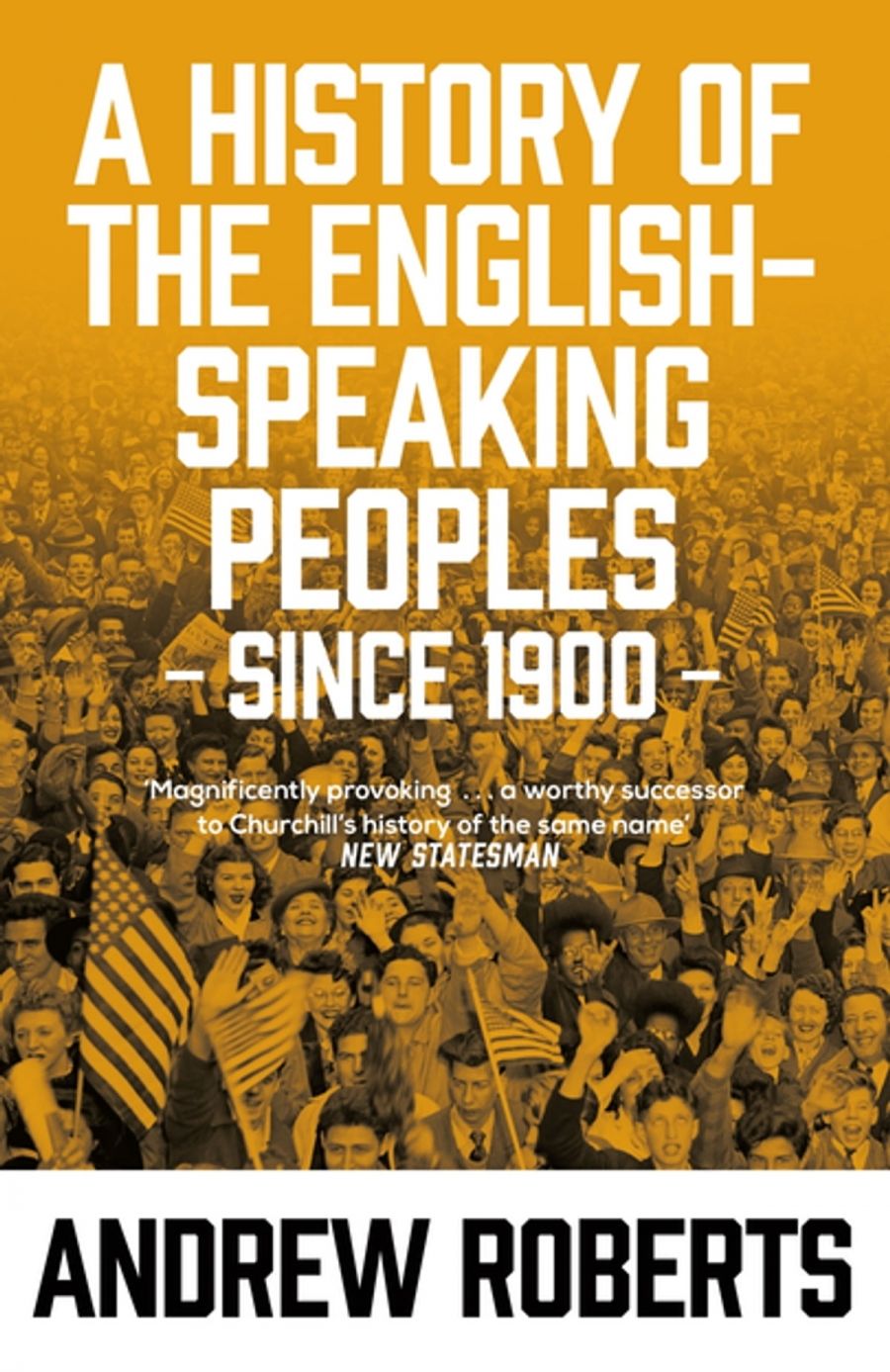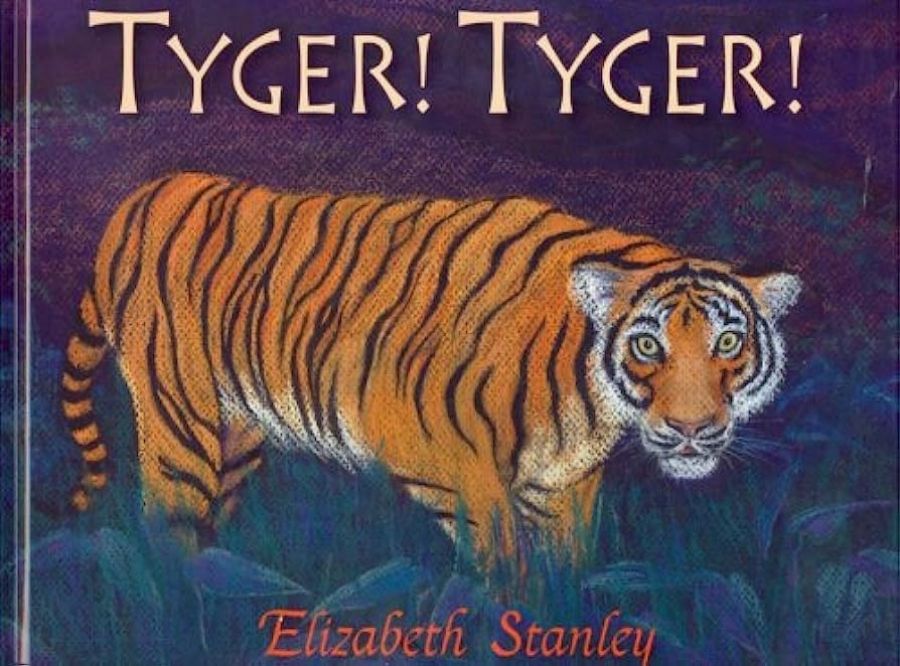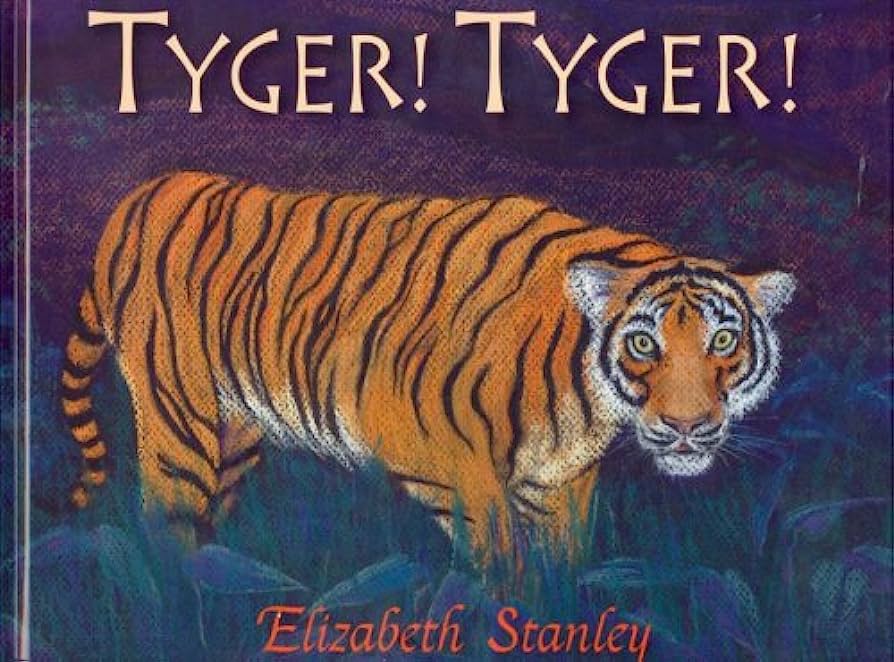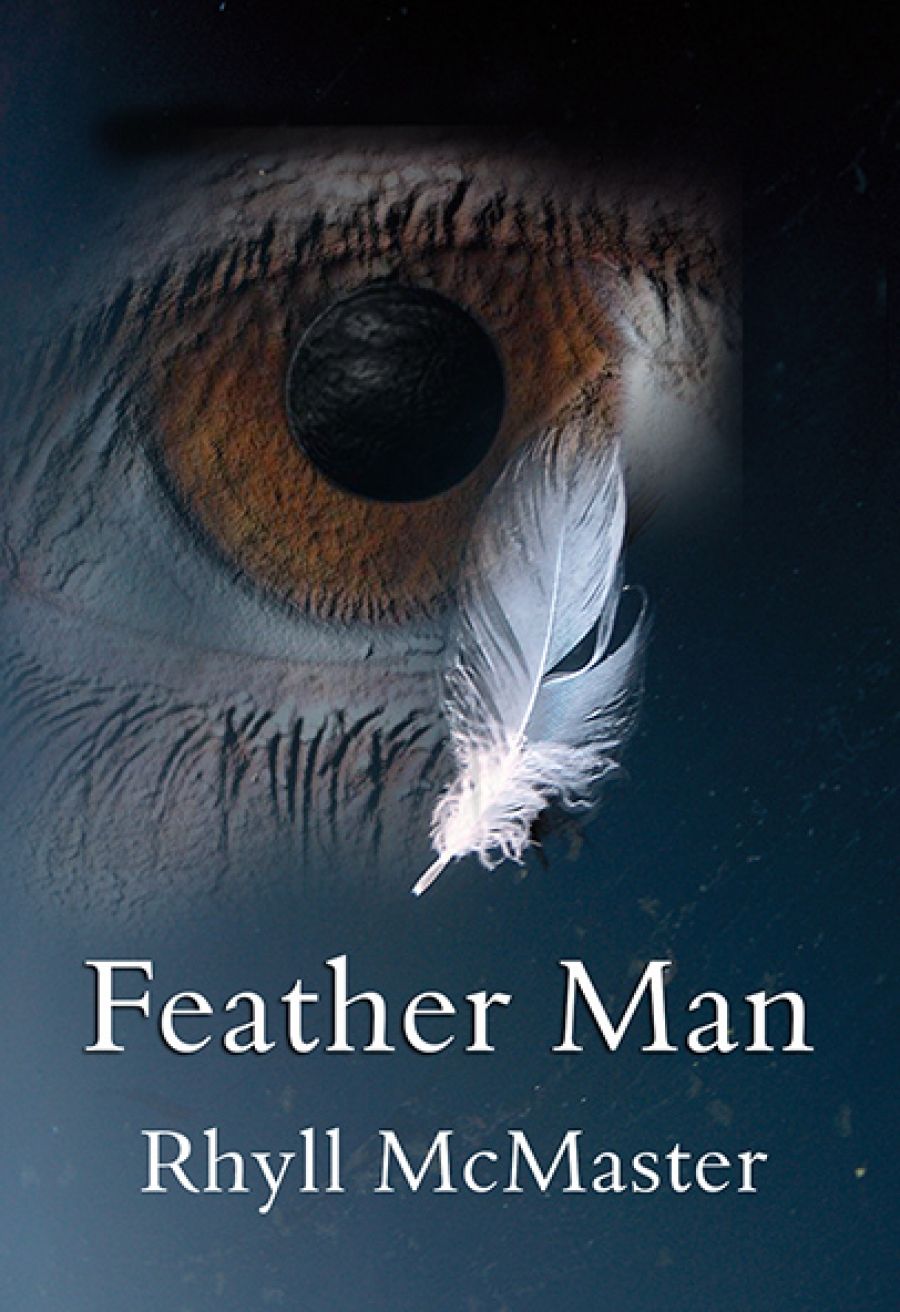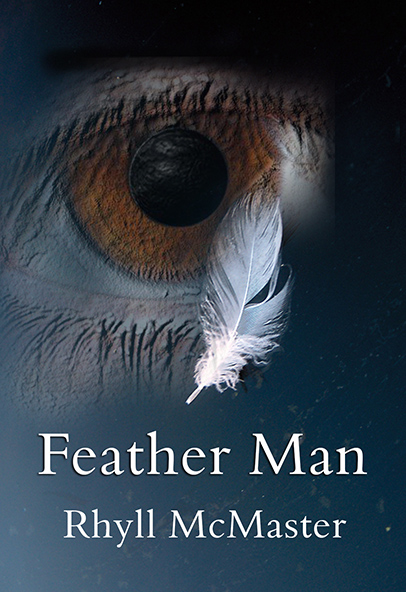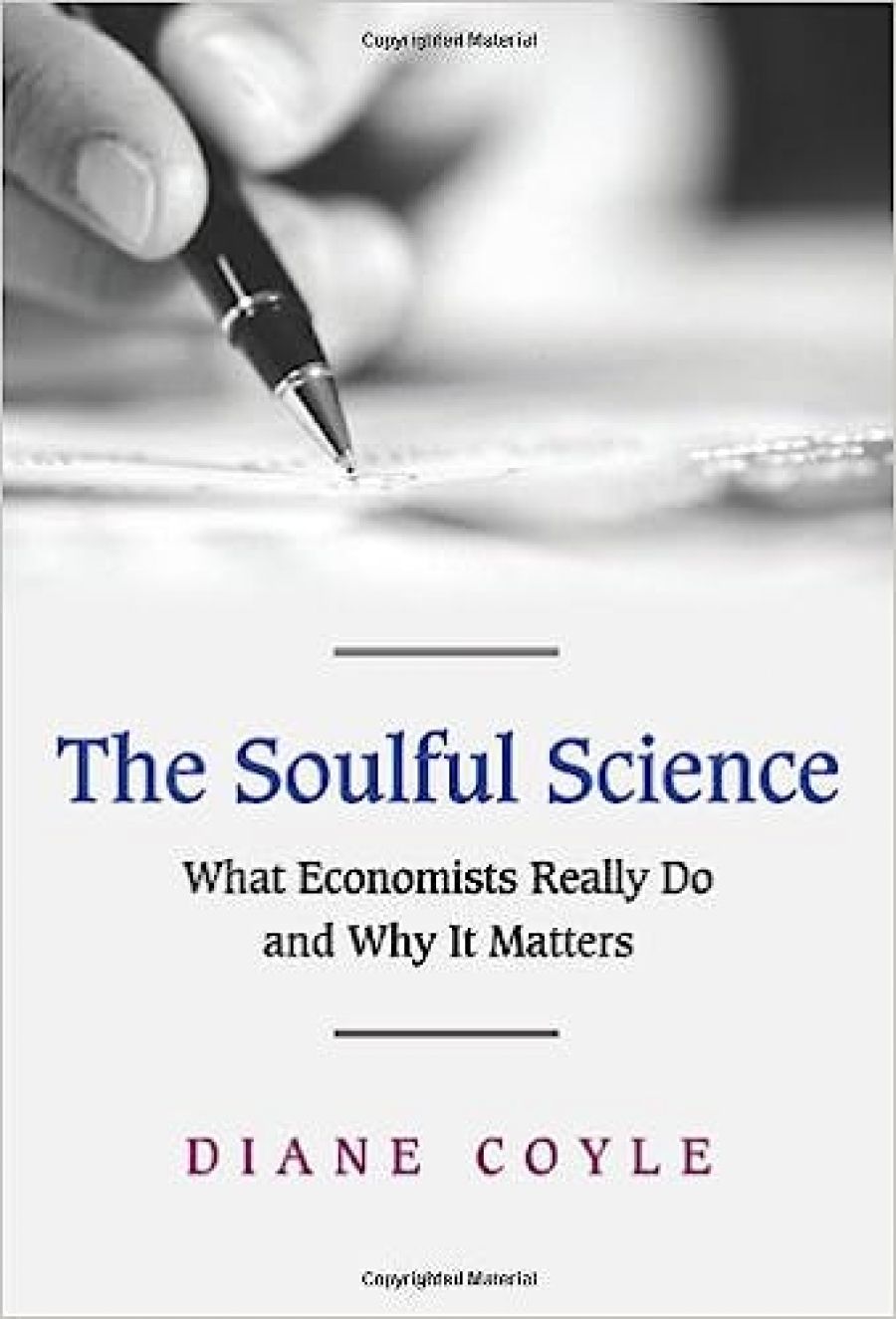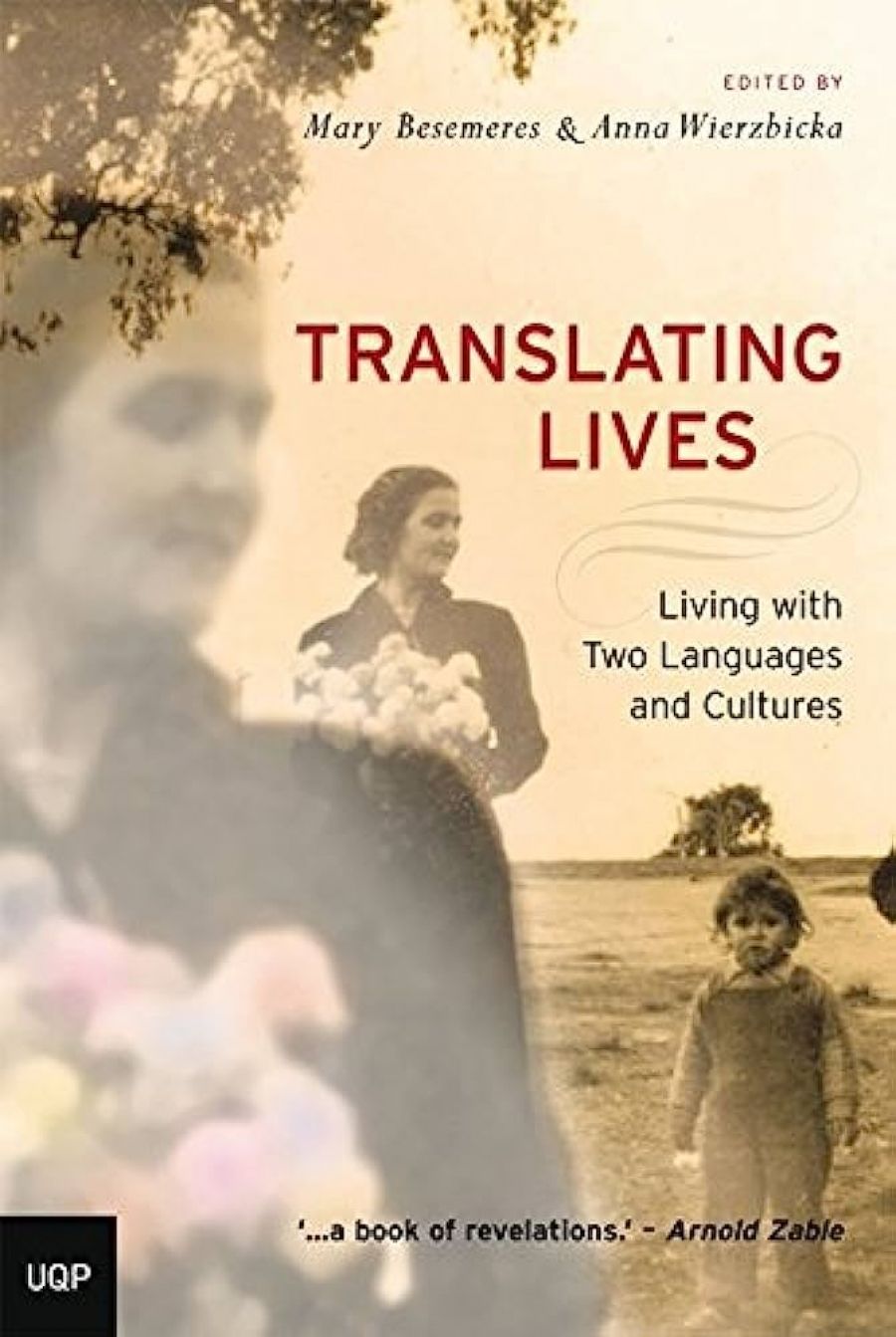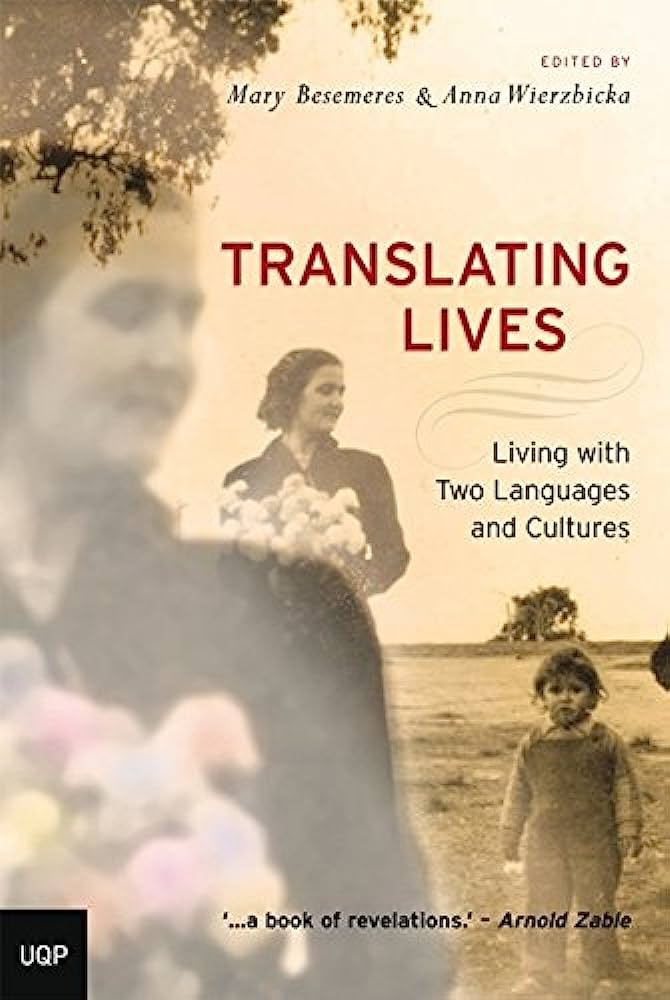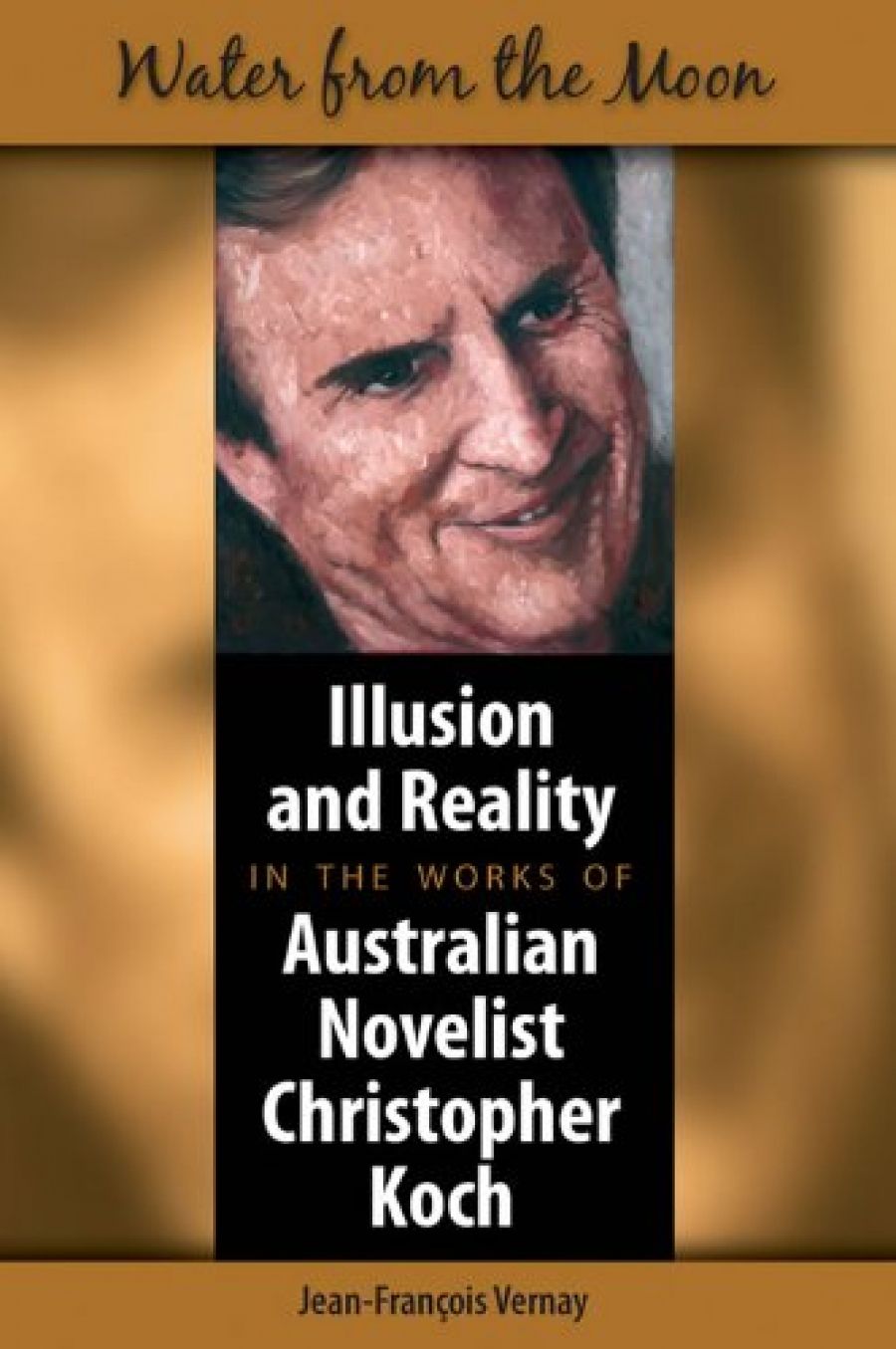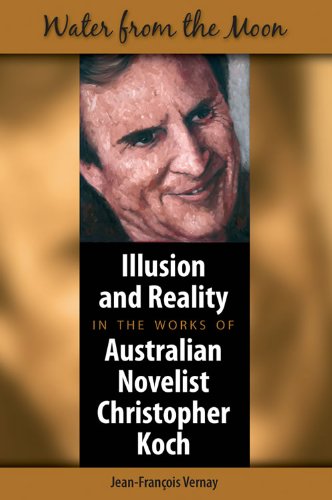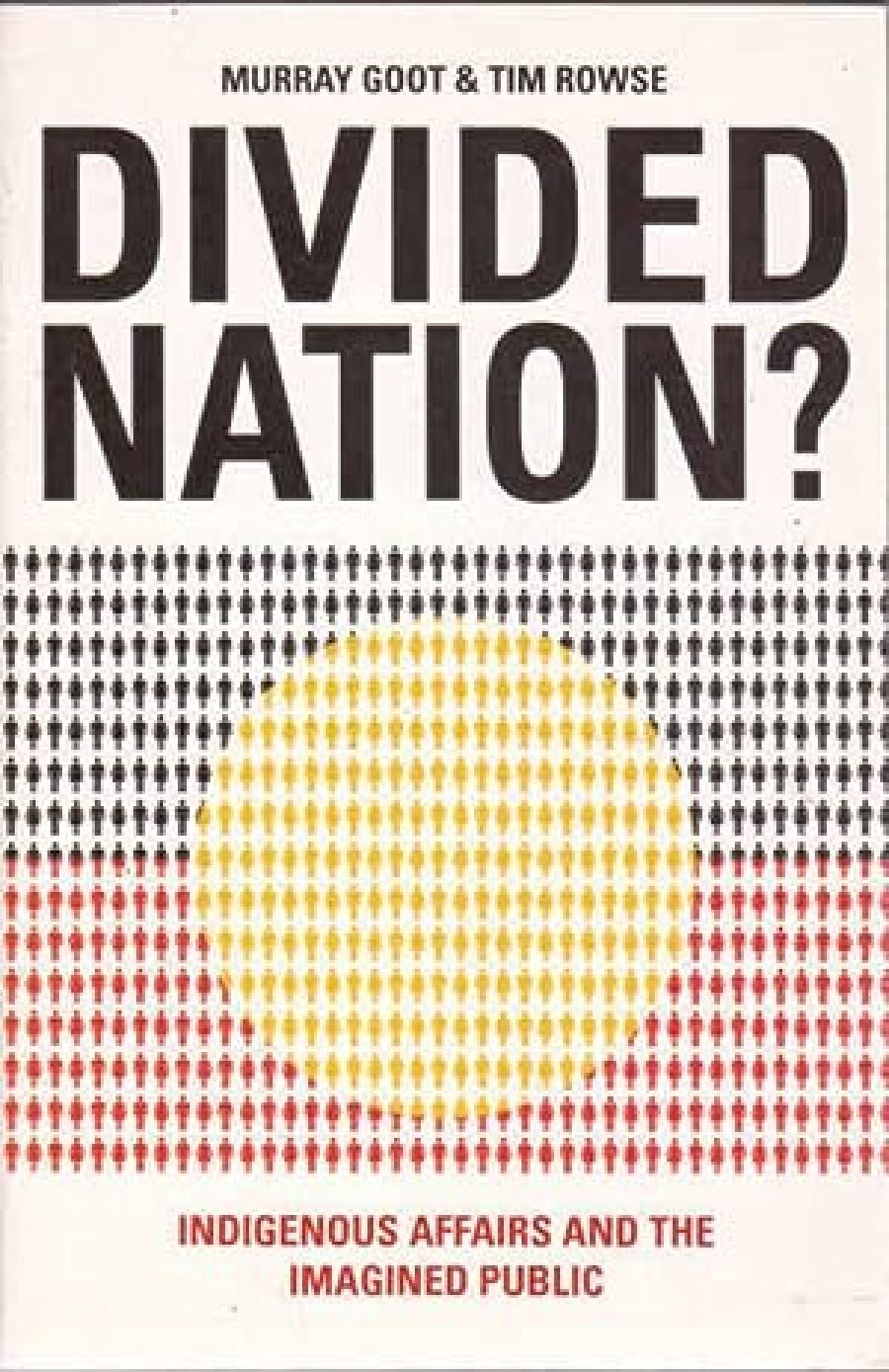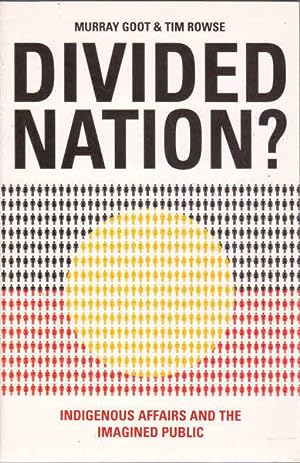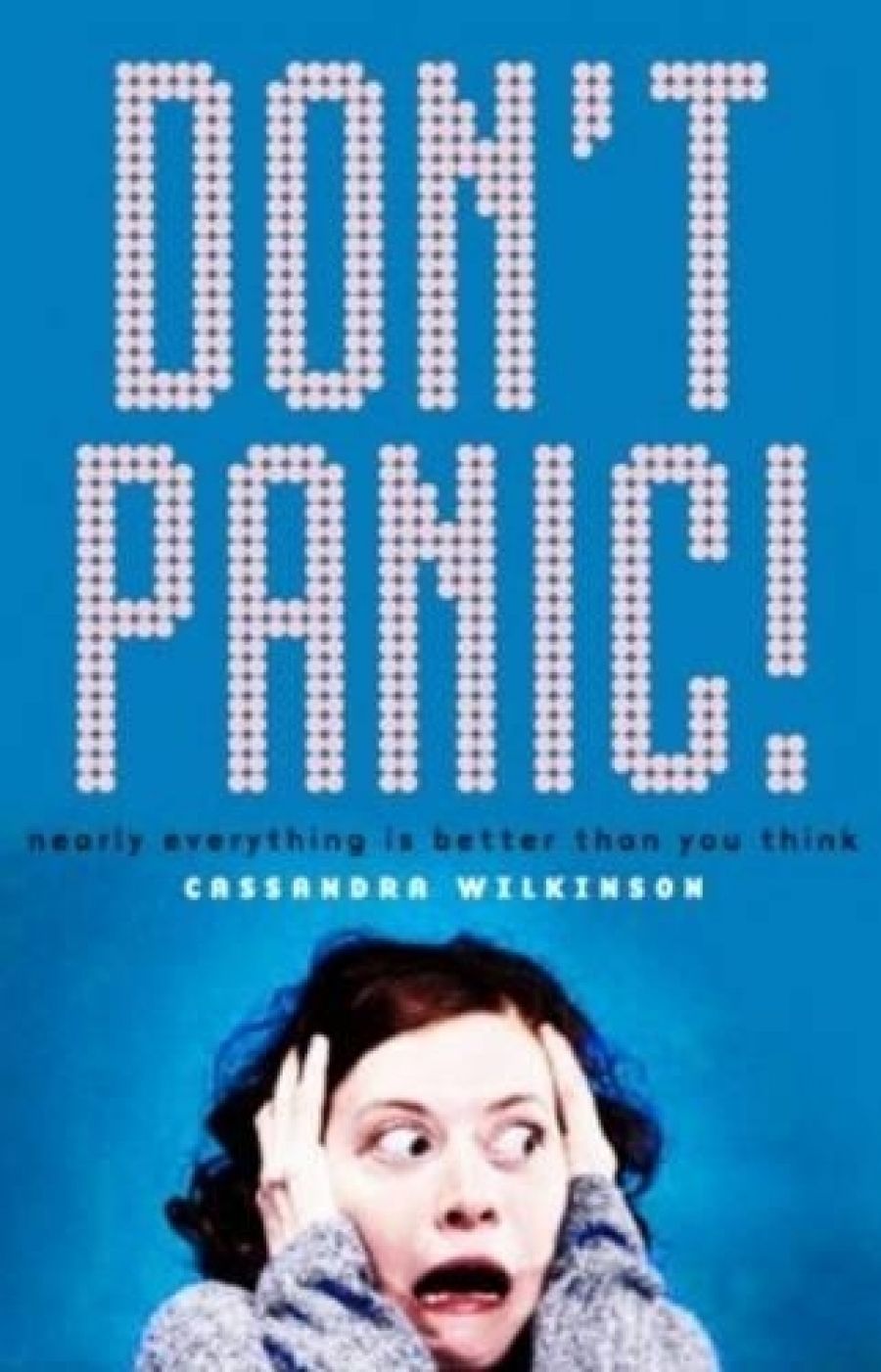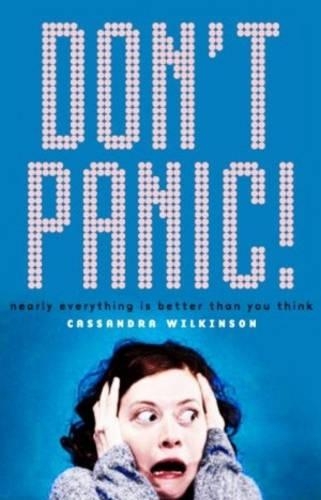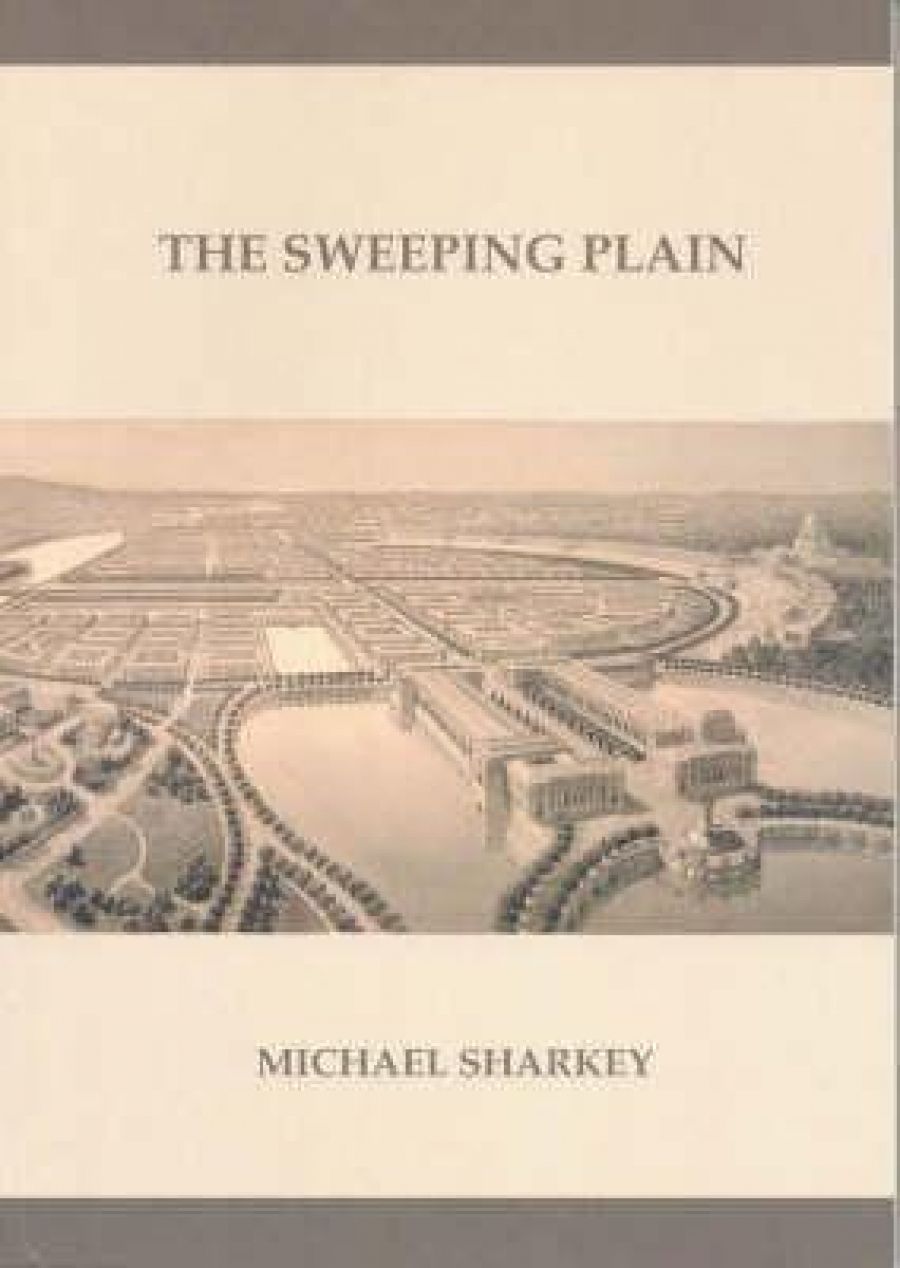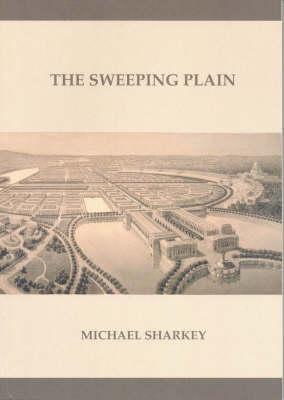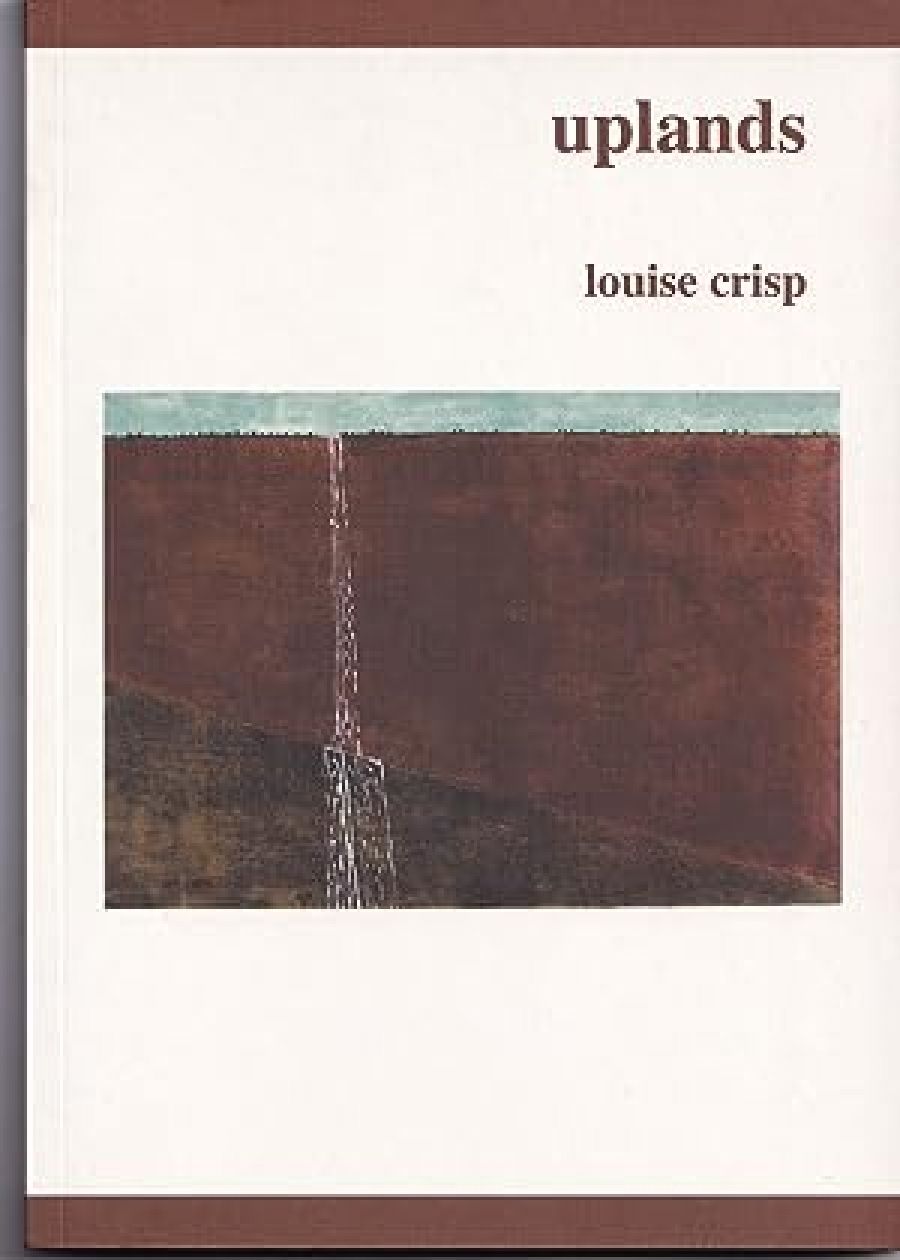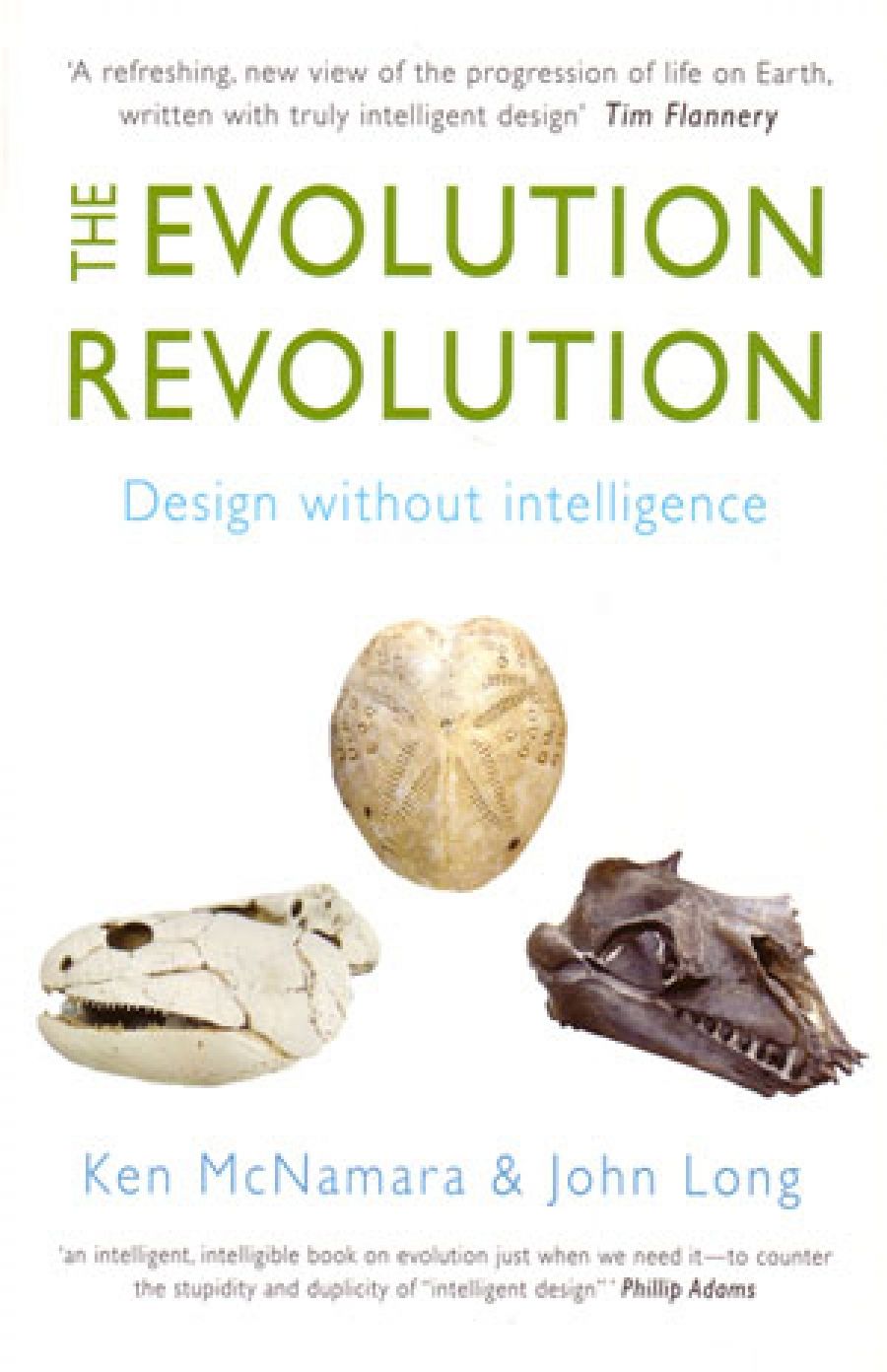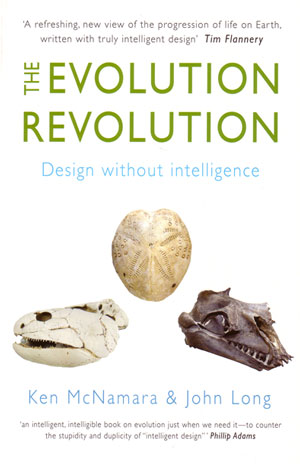Last year, in the Australian Book Review/La Trobe University Annual Lecture series, Ian Donaldson gave a sparkling talk on biography. He told us that it has emerged as something of a cultural phenomenon in recent years, with a biography section at the front of many bookshops. We now know that the genre has endless possibilities (biographers have written about London, Paris, the pineapple and the potato), and that, despite its dissenters, biography has even become acceptable within the academy. My brother, a paediatrician who works in intensive care, has been known to end telephone conversations by saying: ‘Gotta go, got lives to save.’ Ever since Ian Donaldson’s talk, with its wonderful title, ‘Matters of Life and Death: The Return of Biography’ (ABR, November 2006), I have felt able to say: ‘Gotta go, got lives to write.’
This year’s Annual Lecture is once again about biography, but this time, as my title suggests, you are going to get the inside story. This is what I propose. (I take a strange delight in that expression, and I think it comes from those blackboards outside French cafés on which they write ‘On vous propose’, followed by the menu of the day.) For starters, I will talk about the skills a biographer has to develop, and why biographies really are a matter of life and death. We will then pick up our steak knives, and I will discuss my own trajectory as a biographer, with some personal reflections about existentialism, universities and public intellectuals. By this time it will be the moment to sink our spoons into something soft and sweet, and I will come out with a confession. Since I have chosen biographical subjects that have been risky, and am not someone who deludes herself about the difficulties ahead, I have often been cruelly susceptible to what Christina Stead called ‘the 3 a.m.’s’. Before we go our separate ways, I will let you know whether I feel the anguish has been worth it.
I began my first biography, on Christina Stead, in 1985, when I was a tutor in Literary Studies at Deakin University, and so I am looking back at more than twenty years of writing biography and biographical essays. From this vantage point, what do I see as the prerequisites for a biographer? It seems to me that you need to be curious about the world, to like people and be interested in their lives, and to enjoy drawing out their stories. You need to be determined and tenacious. Your research has to be scrupulously correct, or the scholars will wring your neck. You can’t invent facts: you can’t build up atmosphere by saying it was snowing in New York if it was not snowing that day; once you’ve lost your credibility, you’re a dead duck. To write serious biography, you need a strong interest in history, politics and psychology, but this knowledge is simply part of your palette, and must be woven into your narrative with skill and subtlety. I do not think you would get very far if you did not have an adventurous spirit and were not prepared to take risks. Like all writers, you have to be prepared to invest your time and energy in a very uncertain future. But ultimately, the most important thing is your writing, your storytelling ability. A good biography has to be every bit as absorbing, rich, imaginative and stimulating as a good novel or film. Even if it is about a potato.
Biographers carry a big responsibility. They have someone’s life in their hands. What’s unjust is that, if you read a dull biography, you come away thinking that person’s life was dull. In reality, it’s almost never the life that’s the problem; it’s the narration. No wonder people are wary of biographers. It’s bad enough to die; we don’t want some dullard turning our lives into insipid gruel.
It is interesting to reflect on the path that led me to biography. Looking back, I am struck by how fortunate I have been, both in terms of historical timing and my personal circumstances. I have also made some quite dramatic choices. They are complex things, choices. Existentialists would say they come from deep within us, reflecting some sort of ‘original choice’ we made in our childhood. Certain moments stand out when people said something to me that caused a click in my mind, but why these moments and not others? You have to want to hear those words; they have to strike a chord in you. Ultimately, other people influence you only in ways you choose to be influenced.
Since my early twenties, I have been deeply influenced by existentialism, a philosophy which is fundamentally a sophisticated reflection on the extent to which the individual is free or not free. The question that most interested the existentialists was: in what ways do we make ourselves out of what we have been made? In her memoirs, Simone de Beauvoir muses: ‘How is a life formed? How much of it is made up by circumstances … how much by chance, and how much by the subject’s own options and his personal initiatives?’
In their own biographical and auto-biographical writings, Sartre and Beauvoir examined their subject’s situation (the historical period, social class, family dynamics, the person’s physical constitution and so on), while scrutinising, as if under a microscope, any actions that were signs of rebellion or compliance. They saw these as defining moments, which reflected a deep-seated choice of being. In other words, these were moments of existential choice.
I had no say in this whatsoever, but I often think how lucky I was to have been born in the early 1950s. I am grateful to have been brought up before the Internet, mobile phones, BlackBerries and iPods made kids into jittery, easily bored, semi-autistic creatures who, by being so fanatically plugged into the virtual world, have no time left for the world of the imagination. When I was growing up in the 1950s and 1960s, my family did not have television, as a matter of principle, though we usually rented a set during the summer holidays. I was an avid reader, and it seemed to me there was nothing more noble and exciting than being a writer, having the power to transport people into another world.
From the age of nine or so, I wanted to be a writer. One summer in Adelaide, I wrote a novel with a girlfriend. We sat at a folding table beside her family’s swimming pool. One wrote while the other read or swam; then the roles were reversed and the other one took up the story. Her father handed the manuscript to Nancy Cato, the South Australian writer, who was encouraging and told us to persevere. Every summer during high school, I wrote short stories in notebooks, then typed them up on my Remington manual and sent them to magazines. They were all rejected, but even the rejection slips made me feel proud. Real writers get rejection slips.
During my student years, I wrote less for the sheer pleasure of writing. I had less time, and more distractions – such as falling in love. This was the late 1960s and 1970s, when societies all over the Western world were undergoing fundamental changes. I had been politically active from the moment I started university (the anti-apartheid campaign, anti-Vietnam War demonstrations, women’s liberation). We students were convinced we were going to change the world forever. It was a heady period in which to come of age, especially for women. I remember feeling sorry for Simone de Beauvoir, who had done so much to inspire the women’s movement and would not be alive to see what I took for granted my generation would see: a complete transformation of society, with all of us working half-time (due to technological advances) and with true equality between the sexes.
I took a combined honours degree in French and German. I loved languages, and the worlds they opened up. A German fellowship allowed me to spend two years at the University of Freiburg, attending lectures, and making a start on my PhD. Then I went just across the border to Strasbourg, supported by an Australian Commonwealth Scholarship. In both Germany and France, I was active in the women’s movement. In Paris, I interviewed the woman who by this time exerted more influence on my life than anyone else: Simone de Beauvoir. Altogether I spent three years away from Australia, and this was before e-mail, before long-distance phone calls were cheap. There was no hand-holding from home. I was completely immersed in two very different cultures. A marvellous experience for a future writer.
I wrote my PhD dissertation on Beauvoir and existentialist biography. One of the many things I liked about Sartre and Beauvoir was their lifelong interest in biography. Another was their commitment to being public intellectuals who considered it their responsibility to speak out about oppression, injustice and the forces that militated against individual freedom. They were also interested in our own complicity in our non-freedom, a state of mind they called ‘bad faith’. (In The Second Sex [1949], Beauvoir shows how tempting it is for women to slip into certain roles, rather than taking the harder road, which is to assume the burden of their freedom.) After World War II – and the deaths of close friends at the front, in the Holocaust and the Resistance – Sartre and Beauvoir were highly conscious of the limitations of individual freedom. Nevertheless, they argued that individuals have a degree of choice, whatever our circumstances. This, to me, is the burning question at the core of biography. What makes it possible for a handsome, athletic man, who is struck by polio at the age of thirty-nine and never again able to take a single step on his own (and this at a time when the words ‘infantile paralysis’ and ‘cripple’ carried a severe social stigma) to become president of the United States? How does a shy, awkward woman with buck teeth and a wavering falsetto voice become one of the most effective speakers of her time, and the most outspoken, independent, courageous, admired, controversial and savagely mocked First Lady the United States has ever known? (As you may have guessed, I am currently writing a book about the Roosevelt marriage.)
A humanities PhD is, of course, great training in research and mounting a sustained argument, but whereas in the United States, a humanities PhD involves three years of coursework, followed by a dissertation, supervised by a committee of three, a humanities PhD in the British– Australian system generally involves no coursework whatsoever. At least in my time, you would sit at home or in a library or postgraduate room for four or five years incubating a thick dissertation, with occasional meetings with your supervisor. It tested your powers to withstand isolation. I suppose that is quite useful for a future writer. You came out of the experience as chastened as a monk, quivering with self-doubts. I suppose that, too, is useful for a future writer. But one thing was not at all useful for a future writer, and it still isn’t, and that is the language of the academy. English departments should impart the pleasure and power of playing one of the world’s richest languages like a musical instrument, but sadly enough, they are among the worst strongholds of academic jargon. By the early 1980s, when I was finishing my PhD, postmodernism was in vogue, and postgraduate theses clanked with words like ‘discourse’, ‘marginality’, ‘signifier’, ‘masculinist’ and ‘to problematise’. For the last thirty years, the reigning ethos in humanities subjects has been that in order to appear intelligent your sentences must be unintelligible. Fortunately for me, I was extremely resistant to this pressure. I regarded it as a nasty virus. These days, I come across English professors who use Valleygirl speak – ‘like’, ‘totally’, ‘whatever’ and ‘you know what I mean’ – those mindless utterances, emanating from the United States, that have become a worldwide plague.
My PhD was in French Studies, but I wrote it in English, and it was about history and philosophy as much as about literature. I did not want to teach in a French Department, I was not qualified to teach in an English Department, I was thirty-one, and it was not at all clear what I was going to do with my life. I did various part-time jobs, some writing, and quite a bit of worrying. And then a piece of extraordinary luck came my way. Despite the fact that we had for years been talking about ‘interdisciplinarity’, universities were still rigidly divided into ‘departments’. The very word, when you think about it, sounds like something out of Kafka. What good fortune I had in 1984 to crack a job in ‘Literary Studies’ at Deakin University, at that time probably the most interdisciplinary university in the country. The Literary Studies area was keen to employ someone who did not have a standard English Department background, and I was thrilled to have the freedom to range across disciplines pretty much as I pleased.
Deakin was regarded as the equivalent of Britain’s Open University, a progressive sort of place that offered education to working people who would not otherwise have the opportunity to study. In order to write course material for our long-distance students, we formed teams and planned the course content together. These meetings sometimes involved hefty arguments, but this was part of the stimulation. Even with our on-campus teaching, we ‘team-taught’, and I personally learned a great deal from my colleagues.
It was challenging to have two sets of students: the younger on-campus students, who mostly came from the Geelong area, and the highly-motivated mature-age students, who came from all over Victoria and sometimes from interstate, whom we met at occasional weekend schools. Deakin academics were not segregated into departments; the Literary Studies area was part of the School of Humanities, and our offices were scattered throughout the building. I shared my corridor with philosophers, sociologists and political scientists. The humanities staff was expected to attend each other’s seminars. For me, this set-up could not have been more ideal. And dare I remind you, we had six months’ study leave every three years on full pay, and provided we were presenting a paper, the university funded an international conference every year. Luckily, I was aware at the time how good these conditions were. It would have been sad to realise it only afterwards. Because we were going to look back on this as the tail end of a golden period in the academy.
Academics are expected to write books, and there was nothing I wanted to do more. I had no trouble deciding to write a biography; that had been the thrust of my PhD thesis. biography was ‘interdisciplinary’, and I would be writing for the general reader rather than the academy. But deciding on the subject proved a tortuous process. I wanted to write about a woman writer – no doubt because I was looking for some sort of model. Since coming to Deakin, I had been reading my way through Australian literature – for the first time in my life, I might add (my generation hardly touched upon Australian literature at high school) – and I wanted an excuse to dive in deeper. I was fascinated by Henry Handel Richardson, Katharine Susannah Prichard, Dymphna Cusack and Christina Stead. For various reasons, I whittled the choice down to Cusack and Stead. I lacked confidence, and it seemed far too daunting to take on Stead, a towering international figure. ‘She’s too big,’ I told my boyfriend. ‘Why start small?’ he said.
I have found in life that the anticipation is nearly always worse than the challenge itself. Once I got started, I was in my element. I made an appointment with Brenda Niall, a biographer whom I knew and admired, and she gave me some excellent tips. She showed me how she organised her files, one manila folder for every year of her subject’s life, and how she cross-referenced details on index cards. ‘When you interview people,’ she told me, ‘don’t just ask them about Christina Stead; ask them about themselves. After all, they are characters in your book.’ We discussed taping versus note-taking, and agreed that it depended on the situation, but it was safest to take notes anyway. The most important thing was to sit down somewhere, straight after an interview, and go through your notes while the conversation was still fresh in your mind.
I set up a reading group in Australian literature, and four of us met each month for several years – a precious memory for us all. I gave my chapters to a friend who saw it as her mission to make me throw away what she called my ‘academic boots’, and who would write ‘boring!’ and ‘cut!’ in the margin whenever she felt the narrative pace was lagging. My working conditions were perfect: a six-month study leave spent in London and New York where I conducted dozens of interviews, and long summer breaks with no teaching. In the final year of writing, I took unpaid leave. The book came out in 1993, published by Heinemann, and won the Banjo Prize for Non-fiction.
In 1994, I had another six-month study leave. Of all places to go to, I freely went, of my own volition, to Austin, Texas. I owe this experience to my friend, Frank Campbell. We were sitting in the Deakin staff club, and I told him that, much as I liked both places, I was tired of feeling lonely in New York and London. ‘Go to Austin,’ he said. ‘Why on earth would I go there?’ I said. ‘The university has a fantastic library,’ he said. ‘Oil money. I have friends there, an interracial couple, who have a kind of open-house on Sunday afternoons. Through them you’ll meet everyone interesting in town.’
Until I went to Texas, I had to some extent swallowed the myth that America is a gigantic melting pot. It looks that way on the surface, especially on the streets and in the subways of New York. In Texas, I discovered American apartheid. I saw that poverty and police abuse had a great deal to do with skin colour. I saw that even in educated circles – perhaps especially in educated circles – black people and white people rarely had dinner at each other’s houses. A notable exception was the verandah of the sprawling southern gothic house where I spent my Sunday afternoons, and where a handsome young African American told me that Richard Wright had changed his life. Little did I realise, that steamy October afternoon, that he would change mine too.
While I was in Texas, my Stead book was published in the United States, by Henry Holt, and received laudatory reviews. Over lunch in New York, on my way back to Australia, my publisher asked me what I wanted to write next. I said I would like to write about Richard Wright. She put her head in her hands and looked at me through her fingers. She asked me why. I told her that I thought race the most fraught and complex subject in America, and I wanted to try to understand it, from the inside-out. Richard Wright was such a viscerally powerful writer that he made me feel what it was like to be a black boy growing up poor in segregated Mississippi in the 1910s and 1920s, with grandparents who had all been slaves, and an uncle lynched for running a business that was too successful. Wright had felt in exile in his own country, first in the Deep South, and then in the north. In 1946 he and his wife left the United States in disgust. As they sailed out of New York Harbor, Wright wrote in his journal, ‘I felt relieved when my ship sailed past the Statue of Liberty’. They moved to Paris, and at first Wright could scarcely believe his new freedom. But it was the beginning of the Cold War, and as a black American writer who spoke out about American race relations, Wright could not escape the tentacles of the State Department. Paris was bristling with spies and informers, and Wright knew he was being closely watched. We will probably never know for certain whether his premature death in 1960, at the age of fifty-two, was natural or helped along by the CIA.
By this time, my publisher had taken her head out of her hands. ‘I like your outsider perspective,’ she said. ‘It’s fresh. And I like your passion. If you write a good proposal, we’ll publish you.’
Back in Melbourne, I was intensely aware of my hubris. Would I ever be able to understand, let alone convey, the experience of a black man in America? I was not American, I was not black, I was not a man. I struggled with the question of legitimacy, the feeling that I didn’t belong on the other side of that high invisible fence that separates black and white America. Henry Holt was courageous enough to offer me a substantial advance, but before I had signed anything, I backed out, scared. One day, the phone rang. It was Jock McCulloch, a friend of mine, then a colleague at Deakin, who had written a great deal about race. He said: ‘I’m going to say something and then hang up. Listen, Hazel. A publisher has offered you a good advance. You want to be a writer. You want to broaden your horizons. You want to know more about race. You’ve got a fascinating subject. Do you want to spend the rest of your days knowing you did not have the courage? That’s all I want to say. Think about it.’ A click, and the line went quiet.
In the next few weeks, the figure of Richard Wright loomed before me. His whole life was about courage, daring, and determination. He always grappled with the sense that he was an interloper in territory meant only for whites. He hadn’t given in, had he? Needless to say, the people at Henry Holt were not impressed by my vacillations, and I had to write a very convincing proposal to persuade them to take me back on board.
At first I thought I would take unpaid leave to research the book in the United States. But by now it was the mid-1990s, and the Australian academic world had changed. Almost overnight, universities became businesses. We were seeing the rise of the bureaucrat and the demise of the intellectual. The government decreed that universities had to prove their worth in order to gain funding, but the criteria for measuring intellectual endeavour were so ludicrous that I came to the conclusion I could not be the kind of writer I wanted to be under these conditions. At the age of forty-five, I ‘took a package’. Tied in with this decision was another, to leave Australia. I was eight when my family came to Adelaide from England; I had studied French and German; my soul has always belonged to Europe. North America was a new episode, and I would see whether I wanted to stay there or not, but at least it was closer to Europe. I sold my St Kilda flat; I sold my car. I had written an article for the Australian explaining why I felt obliged to leave the university system, and it came out on the very day I was leaving to spend Christmas with my family before departing for the United States. That morning, before my phone was cut off at midday, I received fifty-eight phone calls from academics around the country thanking me for saying what I’d said.
I was stepping into the unknown, and taking a huge risk – financial, professional and personal. But sometimes in life you know what you don’t want more clearly than what you want. It’s funny, too, how your head rattles with clichés when you make an existential choice. ‘Life is short,’ I told myself. ‘It’s now or never. Take the plunge.’ I even remembered something a Marxist boyfriend used to say, twenty years earlier in Germany: ‘Wer, wenn nicht wir? Wann, wenn nicht jetzt?’ (Who, if not us? When, if not now?)
I went to the United States on a three-year visa and had no idea what I would do when that expired. To my astonishment, I obtained a green card with remarkable ease, in a category the name of which I relish, ‘Alien of exceptional ability’. But meanwhile, I was an alien, and I had a book to write on the most fraught and emotional subject in America: race. It wasn’t just that I knew next to nothing about the subject matter; I did not know much about my readers, either. The least of my problems was to change over to American spelling. I had to find out fast what American readers knew about their history, about race issues, and how they talked about it. I am exceedingly grateful that the Du Bois Institute in African American Studies at Harvard made me a visiting fellow, a privilege they extended year after year. Professor Henry Louis Gates welcomed scholars from Africa, Europe and elsewhere; he did not want African-American Studies to be a ghetto. We came together as a group every Wednesday for a two-hour lunchtime seminar. In that Harvard common room, among the Persian rugs, deer antlers and portraits of white men, we heard speakers from all over the world, and engaged in animated discussion about race issues.
Richard Wright took me to the black ghettoes of Mississippi, the South Side of Chicago, to Harlem. There were days when the only white person I would see was myself, in the mirror. As it turned out, it was a real advantage to be an outsider. My accent gave me licence to ask questions I could not have asked if I had been a white American. At first, my black interviewees would look at me with bemusement, but when they saw that I had done my research thoroughly and was open-minded, they talked to me more frankly than I had dared to hope. When I finished the manuscript, I gave it to American friends to vet – black friends and white friends. Nevertheless, I was scared of the reviews. Would they call me a naïve white woman from Australia?
The publisher’s blurb on the back of the book made me sound like an American. I also noticed that they had left off the author’s photograph. When I asked about it, they pretended it was a question of space. In fact, the marketing people did not want to reveal my colour.
The book came out in August 2001, and had cover reviews in the New York Times, the Washington Post, and the Chicago Tribune. I was proud that the highest praise came from prominent black male intellectuals. The Washington Post reviewer, an African-American writer who lives in Paris, told me afterwards that he could tell from certain sentences that I was not American, but he had not been able to work out whether I was black or white, and the enigma had intrigued him throughout the book. (In the United States, the name ‘Hazel’ is possibly more commonly a black name than a white name.)
Two weeks after publication, a disaster occurred that took all discussion of books off the airwaves, devastated the New York theatre season, and made numerous businesses go bankrupt. September 11 reminded me what it was like for Christina Stead to publish The Man Who Loved Children in 1940.
I have sometimes compared writing biography to being in love. This sounds melodramatic, and it is not quite accurate, since it is essential for a biographer to keep her lucidity and to remain in control of her subject matter, and that is not quite akin to my experience of being in love. But there are striking parallels. My books are voyages, risky voyages, involving a great deal of passion on my part. I choose subjects that will open up new worlds for me. It has always been a harrowing decision for me to commit myself to a subject; I know I will be living with that person day and night for two to four years. Much energy and empathy goes into putting yourself in someone else’s shoes; you inevitably become obsessed. And you have to follow that person wherever he or she takes you. I write about people I deeply admire, but when you study them closely, they are always flawed, and you end up grappling with these flaws as if they were your partner’s. Rather than judging them, my energy goes into understanding them, which is something I am prepared to do only with people I love. Finally, I finish the book. Do I feel relieved? No, I feel lost. It’s the end of an affair.
To write about Sartre and Beauvoir, I moved to Paris, rented a fifth-floor walk-up looking out onto slate rooftops and terracotta chimney pots, filled it with my books and went out to talk to those who remained from Beauvoir and Sartre’s intimate circle. I found this a much easier book to write than the previous two. This time, I was writing a book where I already knew a lot about the subject matter. By now I was far more confident as a storyteller. I had fun with Tête-à-Tête: The lives and loves of Simone de Beauvoir and Jean-Paul Sartre, from beginning to end.
Once again, it was an advantage to be an outsider. The Parisian intellectual world, I would discover, consists of cliques, which in their loyalties and hatreds are not unlike the gangs in West Side Story. I came with credentials, which was important, but the French could not quite place me. As a foreigner, I felt less bound by what I could and could not say about this iconic French couple. It was just as well that I was a more experienced biographer, because this time I was negotiating a path between two camps, the Beauvoir camp and the Sartre camp, which on the whole detest each other. I had to be constantly aware of the viewpoint of the person I was speaking to, and had to judiciously sift everything he or she told me. When I was younger, I would have been terribly intimidated by these French intellectuals. I had been duly warned that Claude Lanzmann, the film-maker and former boyfriend of Beauvoir, would probably not consent to see me and that if he did he would be abominably rude. Well, he put me through every possible hoop before agreeing to, but he saw me several times. On the first occasion, he had me come to his vacation home on the west coast of France. He set up his tape recorder – in case he needed to sue me, he said. We would talk for two hours at most, he said, and then we would go out in his boat. Ten minutes in, I asked him something and he exploded: ‘Mais c’est une question idiote!’ I said: ‘Maybe it is, but I’d like you to answer it anyway.’ He looked at me with fury. I gazed at the sky. Two minutes passed. Finally he spoke. It was his most interesting reply.
What were the main difficulties I had writing Tête-à-Tête? Nearly all the books by Beauvoir and Sartre are doorstoppers. So are the biographies about them. I was determined to keep my story concise and rapid-moving. I wanted to write a medium-sized book that readers could hold comfortably in bed. But how to do that? I was dealing with not one central character but two, and then there was what they called ‘la petite famille’ – the friends and lovers. I was drowning in material. The answer, I realised, was selectivity. Sublime detail, but no superfluous detail. I wanted the book to leave readers hungry for more.
My other worry was more of a moral one. I was writing a book about people I admired, and I was acutely conscious of the danger of trivialising them. I wanted to tell the truth about this relationship, and I didn’t want to whitewash their behaviour in any way, but the fact is that Sartre’s and Beauvoir’s love lives do not always show them in their best light. I took pains to sketch in the broader picture – their philosophy, their incredible capacity for hard work, their courage as public intellectuals (both were, at times, the target of extraordinary hostility).
Sartre and Beauvoir have always aroused passion – admiration and hatred – and the reaction to my book shows that they still do. Some reviewers praised me for not being at all judgmental and then proceeded to dance a furious little jig themselves, denouncing Sartre and Beauvoir as monstrous, immoral and sexually depraved. A reviewer in Le Monde surmised that we were once again experiencing American puritanism. Rosemary Sorensen wrote in the Brisbane Courier Mail: ‘I do wonder if some of the animosity is envy hiding behind prissy puritanism.’ For me, the biggest surprise came when the book appeared in the United Kingdom, and a couple of reviewers in that country reacted like maddened seventeenth-century Salem witch-hunters – this time raging against me, as well as against Sartre and Beauvoir. One of the problems with biography is that it attracts reviewers who already have strong views about your subject, and sometimes, as their pontifications make clear, they scarcely even read your book.
This brings me to the question of judgement. In my last two books, I have left all judgement out of the narrative. I have done so deliberately. I see it as my task to present the facts, to tell a good story and leave it up to readers to decide what they think. You could argue that my choice of what to put in and leave out is already a kind of judgment; I am steering the reader’s opinions. I would normally agree, but the fact is my steering lands readers all over the landscape. Those who were already attracted to Sartre and Beauvoir tell me that they found my book deeply moving and that they cried at the end. Those who already disliked them tell me it made them seem thoroughly dislikeable. With Tête-à-Tête I have finally learned that my readers and I do not necessarily think the same way, and it is probably not a good idea to write a book that provides a kind of blank slate on which readers project their own feelings. For my Roosevelt book, I’ve decided to include more authorial comment – as I did in my Stead book.
One of the rewards of writing biography is that it gives you a perspective on our own times; it gives you a ‘long view’ of history. My three biographies have been about people born in the first decade of the twentieth century, and I am more and more struck by the parallels between that generation and my own. Stead was born in 1902; Sartre in 1905; Beauvoir and Wright in 1908. They came of age in the late 1920s and 1930s, when the left was strong, revolutionary Russia seemed to be a beacon of hope, and women enjoyed a new freedom. By the late 1940s everything had changed. World War II was followed by the Cold War, and the United States was in a position of global eminence.
Joe McCarthy and J. Edgar Hoover created an atmosphere of fear, conservatism and guilt by association. The left was brutally suppressed. As writers, Richard Wright and Christina Stead more or less disappeared from view. Stead’s work was too angry, too critical of society for the conservative 1950s. Richard Wright was writing nonfiction: his book Black Power (1954), about the Gold Coast (soon to become Ghana) and Pagan Spain (1957), about Spain under Franco, contained some of his best writing ever, but the Western world was deeply threatened by the independence of Ghana, and the United States had just signed an important economic and military treaty with Franco. Wright told a friend: ‘So far as the Americans are concerned, I’m worse than a Communist, for my work falls like a shadow across their policy in Asia and Africa … Truth-telling today is both unpopular and suspect.’
As public intellectuals, Sartre and Beauvoir were famous in the 1950s, but they were widely hated, and Beauvoir writes that they felt in exile in their own country. France was fighting a vicious colonial war in Algeria, and the French press was in cahoots with the government. There was silence about the unbelievable torture methods the French army were using. The press did not even call it ‘the Algerian War’: it was ‘the Algerian question’ or ‘the troubles in Algeria’. Sartre and Beauvoir believed in Algerian independence, and their journal, Les Temps modernes, spoke out about the torture. In the early 1960s their lives were in such danger that they had to go into hiding. Sartre’s apartment was twice ripped apart by dynamite bombs.
My generation came of age in the late 1960s and 1970s, a time of revolutionary change and hope. Then – it happened sometime in the 1990s – everything changed. These days, I think that most of my friends in the Anglo-Saxon world – whether we live in Australia, the United States or the United Kingdom – would say we feel in exile in our own country. With that mindless slogan ‘war against terror’, our governments have brought war and terror to Iraq, and have taken our own countries into an endless war. While our leaders jabber on about freedom and democracy, we are seeing our freedoms brutally curtailed. Kurt Vonnegut, a writer who could not contain his disgust with the Bush government and who never lost the courage to speak out, wrote in his memoirs: ‘Our daily news sources, newspapers and TV, are now so craven, so unvigilant on behalf of the American people, so uninformative, that only in books do we learn what’s really going on ... I am a man without a country, except for the librarians.’
I would say the same. I do not have a country. In any event, I have always been wary of nationalism. I gain strength and nourishment from the people I write about, people who lived in difficult times and who never gave up the fight, the struggle, the hard work. And I am inspired by public intellectuals who speak out; by independent, unembedded journalists; by publishers and newspaper and magazine editors who publish books and articles that are important rather than safe or commercially viable; and by the owners of independent booksellers who are fighting a heroic and losing battle against the chain bookshops that now determine which books ‘make it’ and which ones don’t.
I promised to end this talk with a confession. I said I would tell you whether I think the anguish of being a biographer has been worth it. How shall I put it? Writing is harrowing. Out of a spider web, a vague notion in your head, you have to create a book. You are expected to produce it on time, and it had better be a page-turner or the publishers will want their advance back. For every photograph, for every significant quotation, you have to get copyright permission, and this can take months and cost you several thousand dollars. There are always at least a couple of killer reviews, and you are supposed to take them with a shrug. If the book doesn’t sell, somehow it’s you, the author, who is to blame.
And yet, and yet … There are ups and there are downs, but as I see it, being a writer is an enormous privilege. Your life and work blur into one. Whatever you do, you can tell yourself it’s experience, and that’s what a writer needs most. While the world is full of people carrying out various forms of alienated labour, I look at my watch not because the days drag, but because they are far too short. I love visiting archives, gathering material and interviewing people. I love sitting in a room by myself, with the phone turned down, lost in my own world, writing. You cannot believe how satisfying it is when the manuscript is finished and a whole team of people – your editor, copy-editor, indexer, cover designer, and publicist – busy themselves turning it into a beautiful object that bears your name. Then your book is out there in the bookshops. You get letters from strangers thanking you for transporting them to another world. In one way, I have not changed at all since I was nine. I still think there is nothing more exciting than being a writer.
